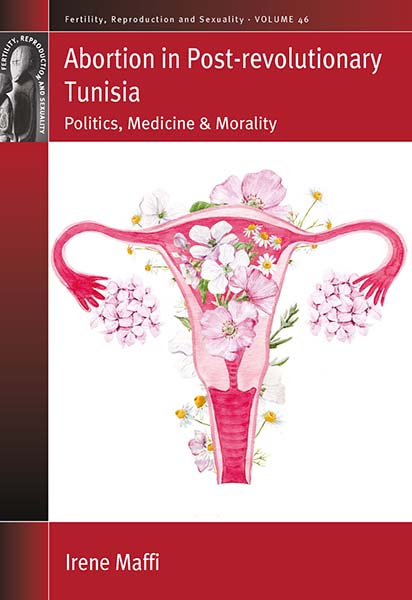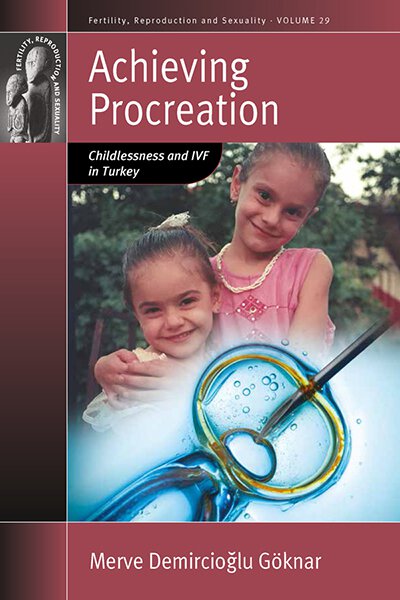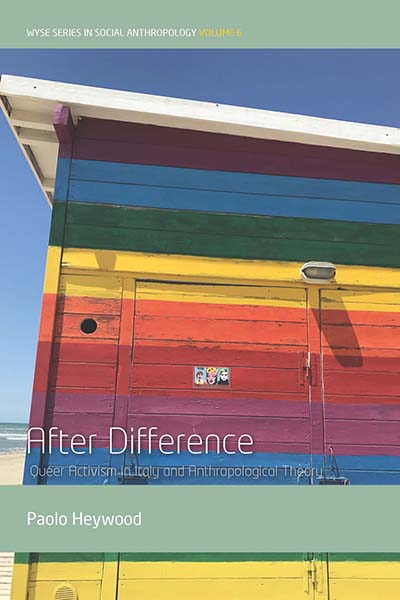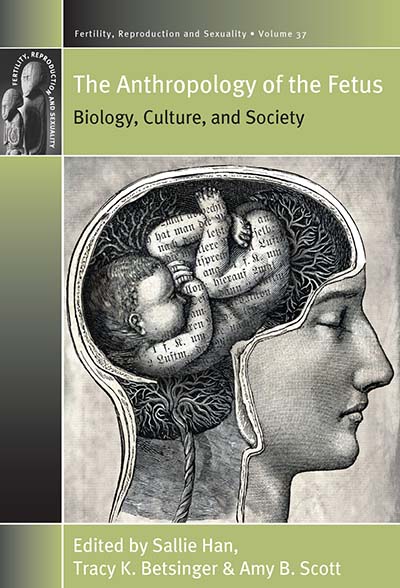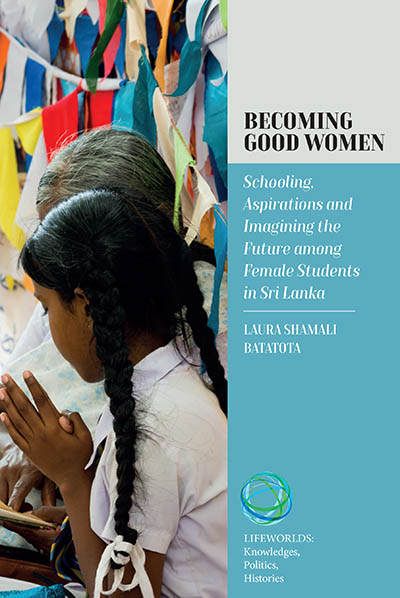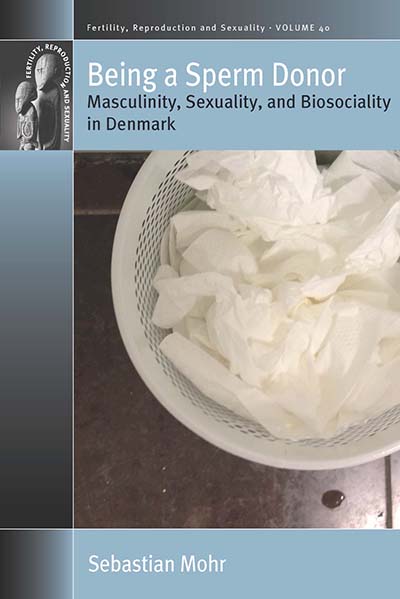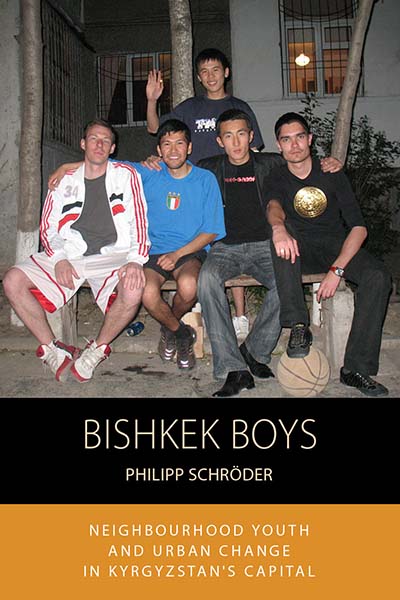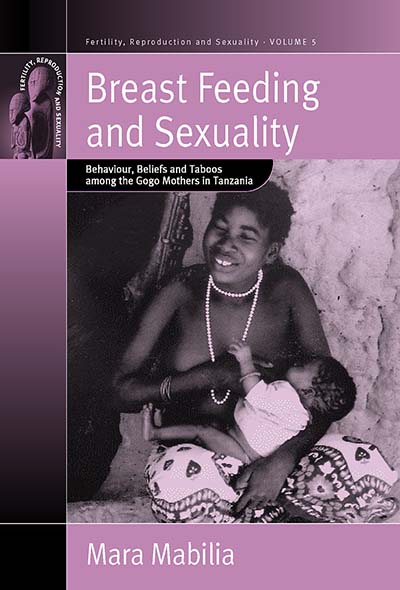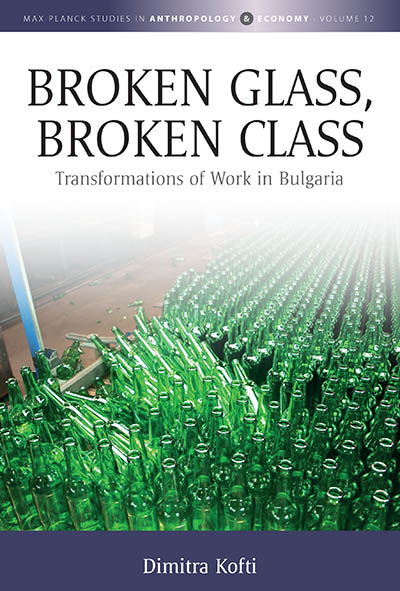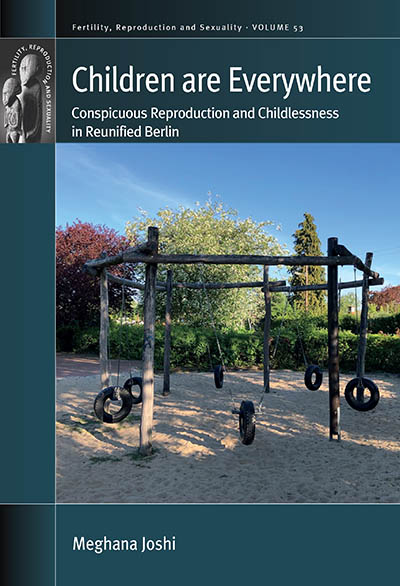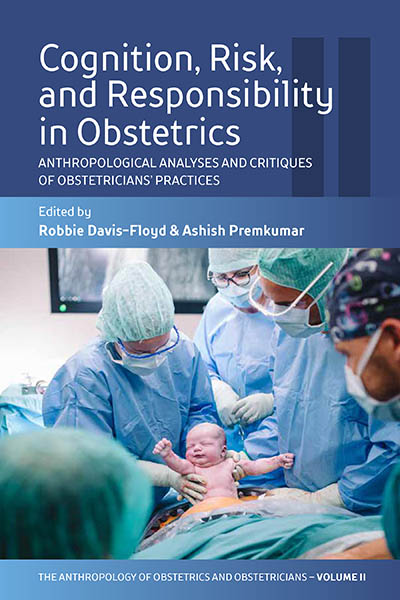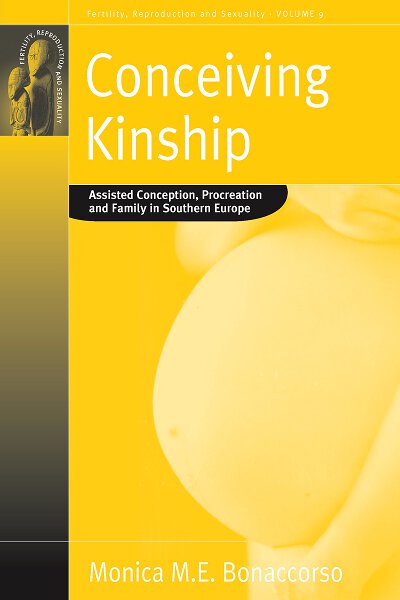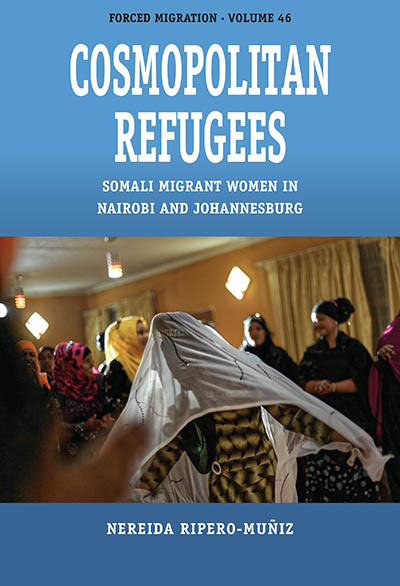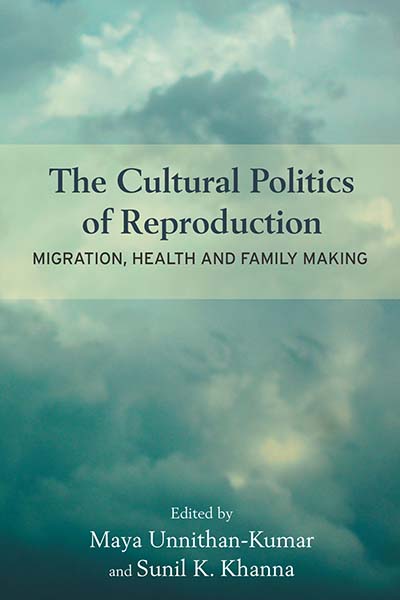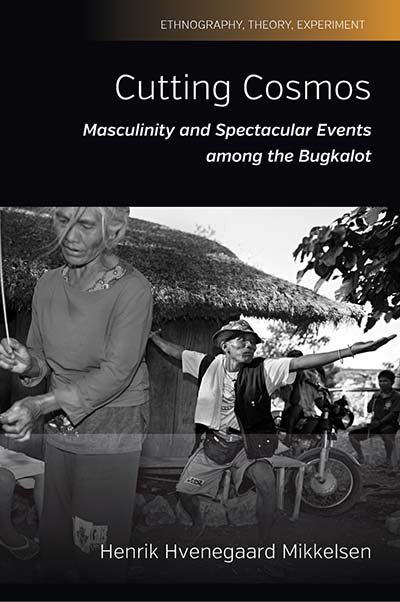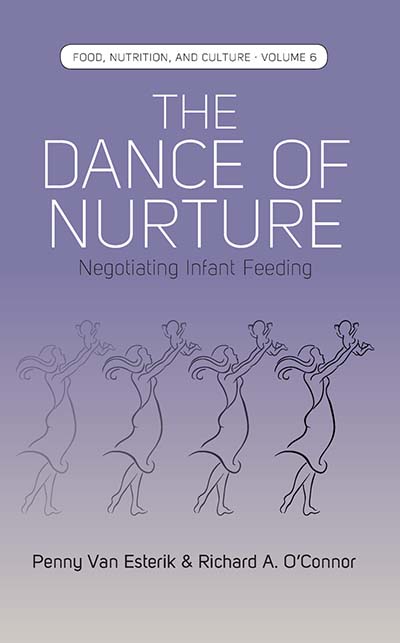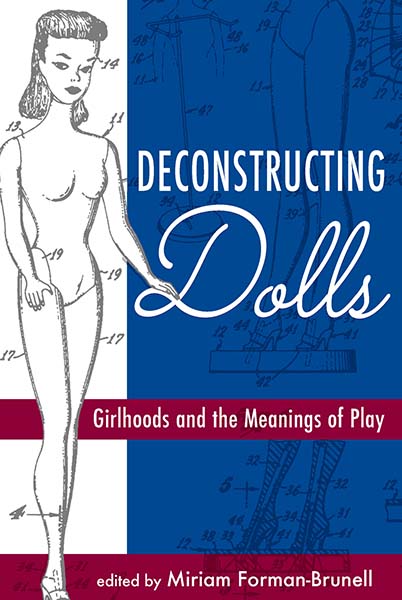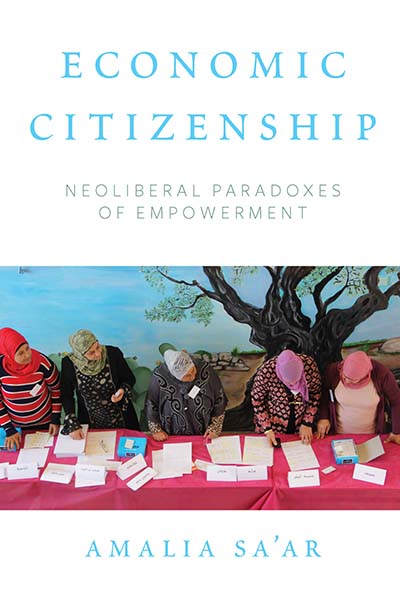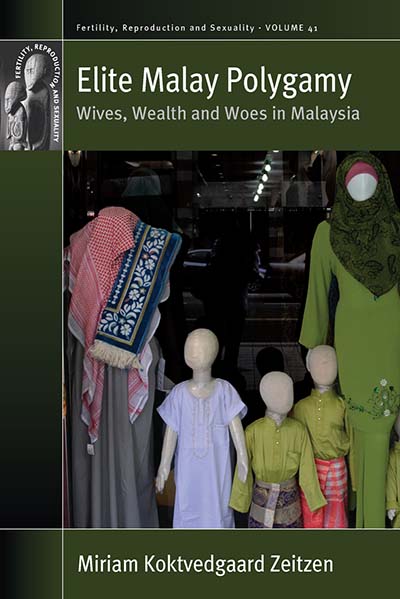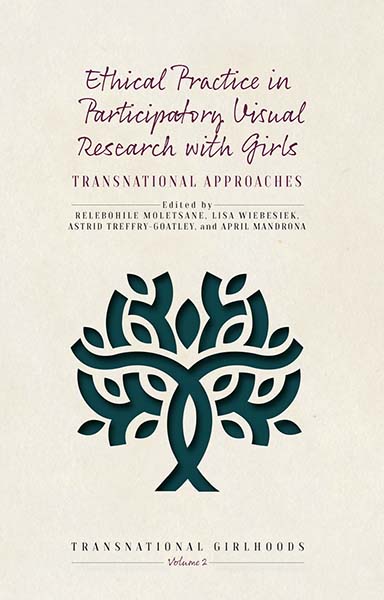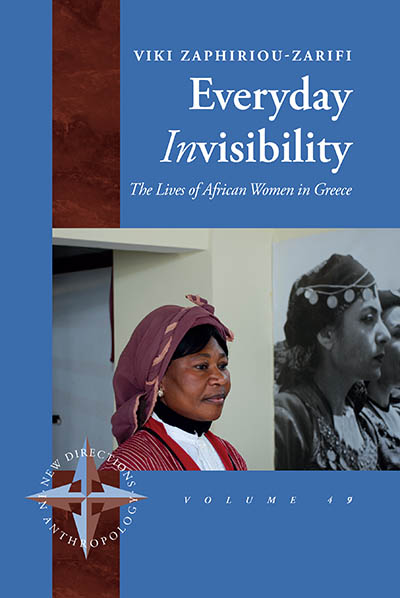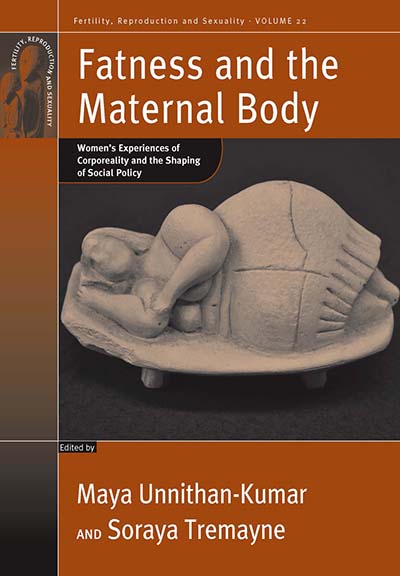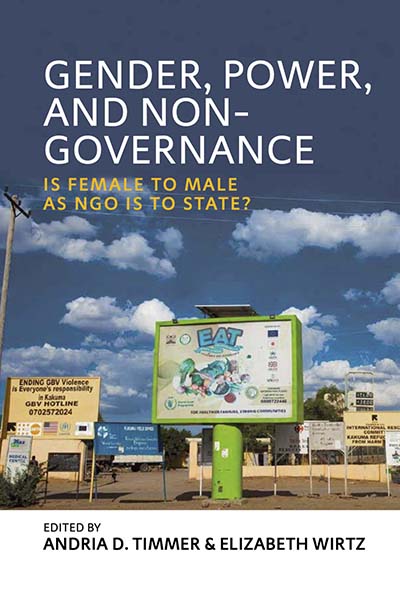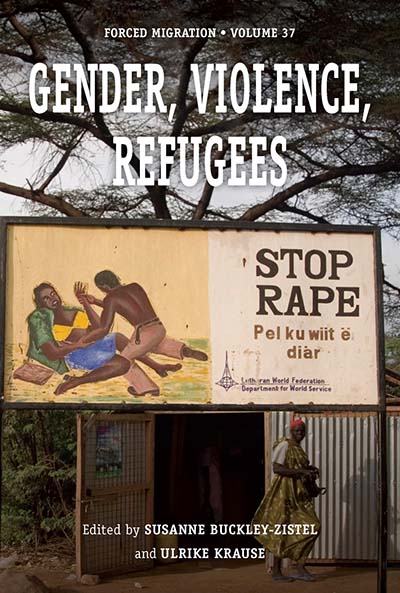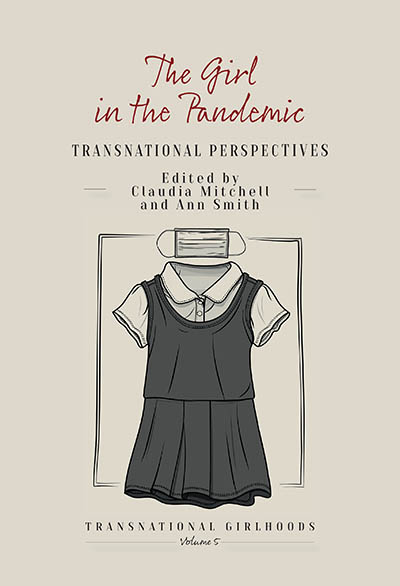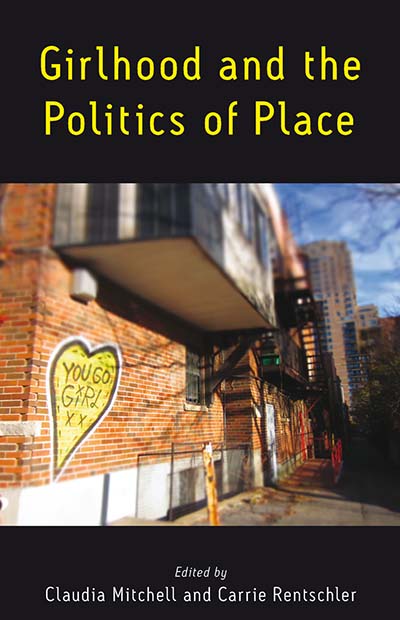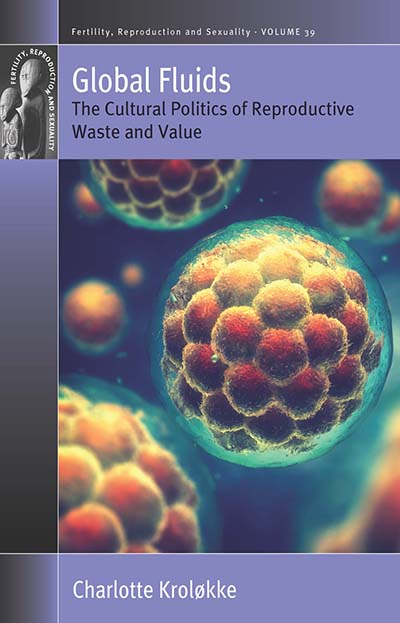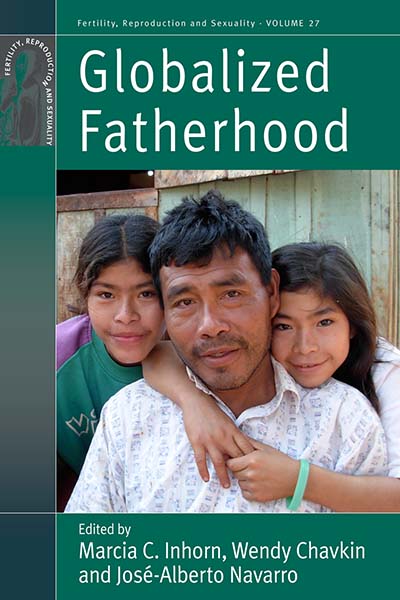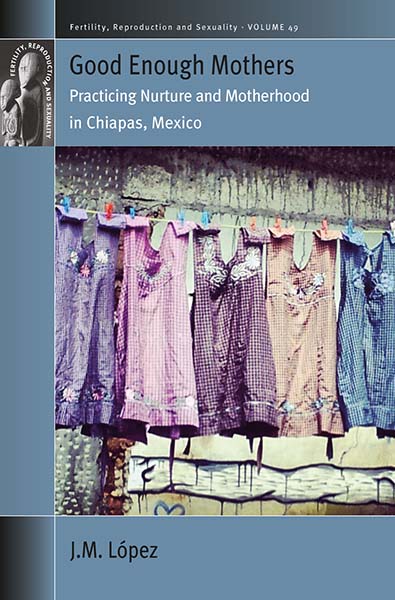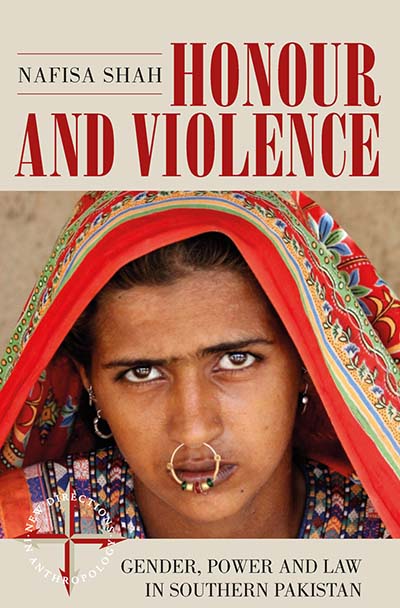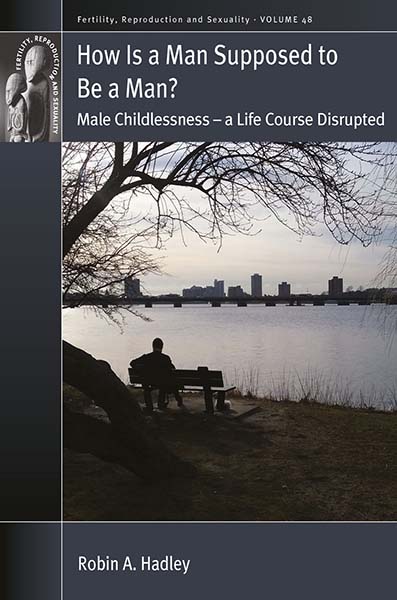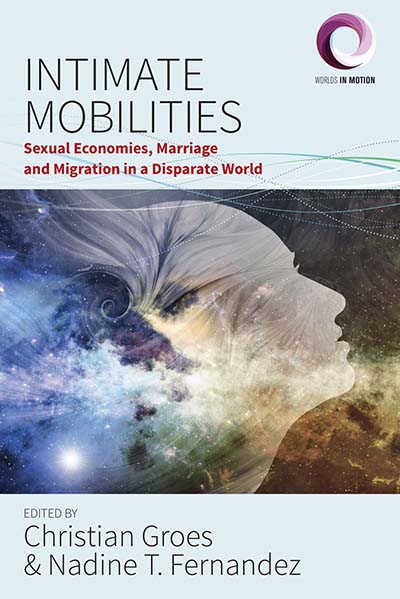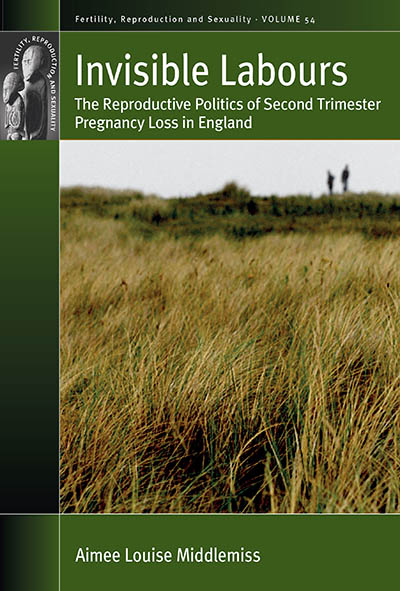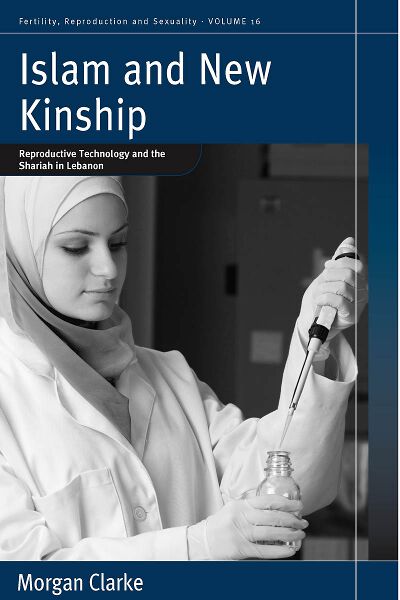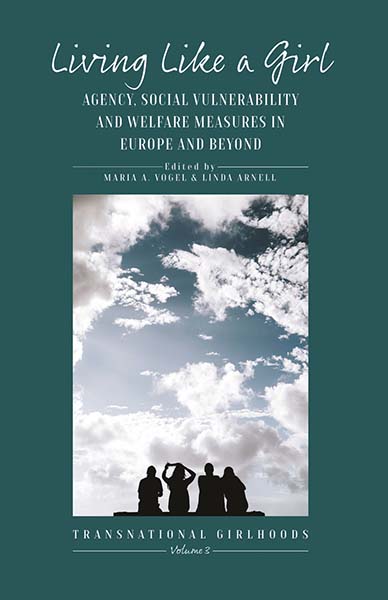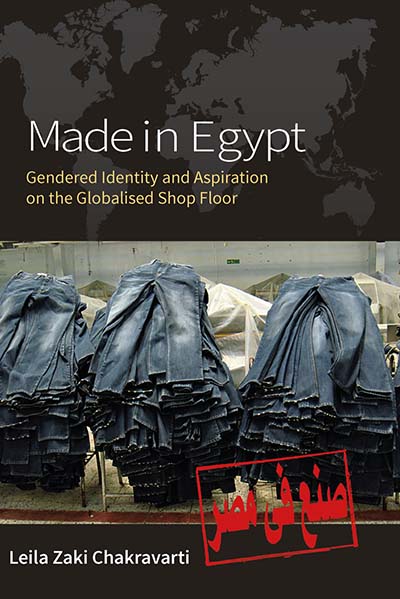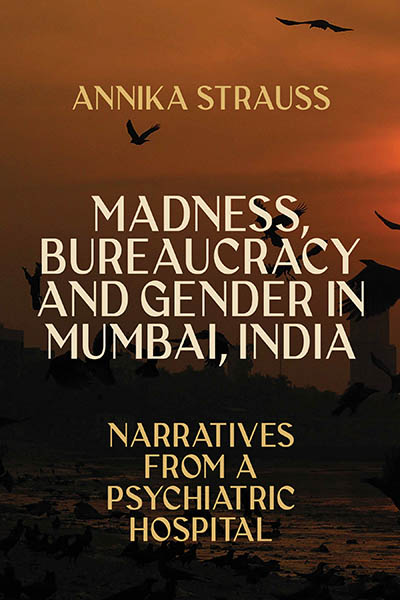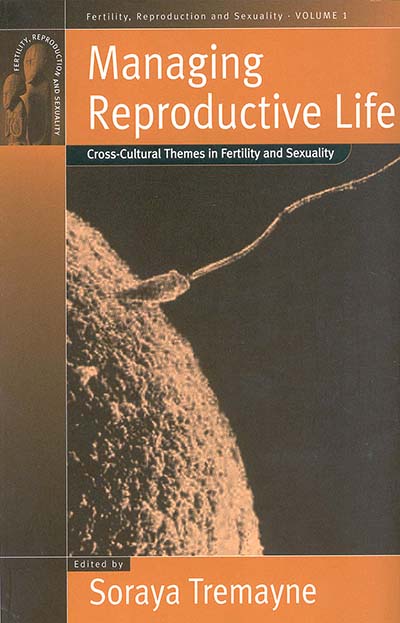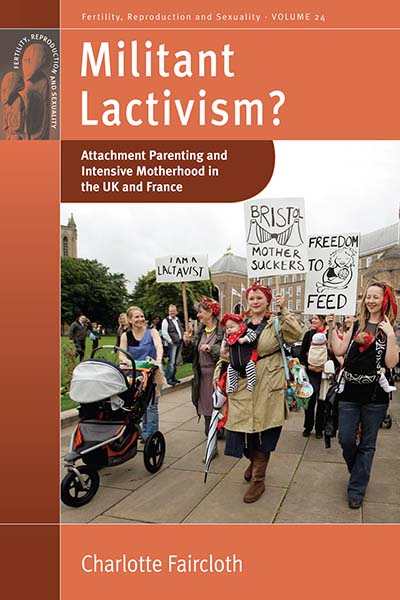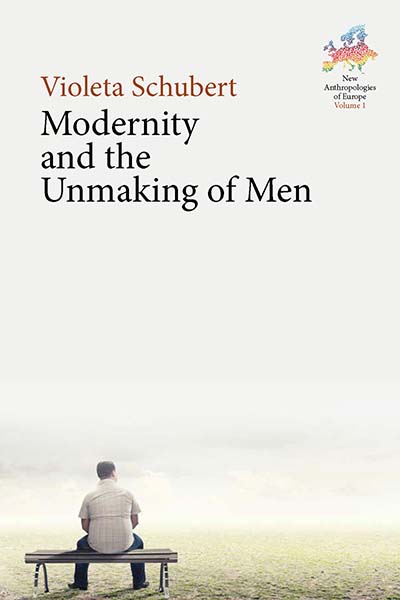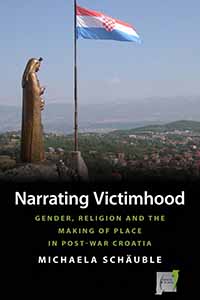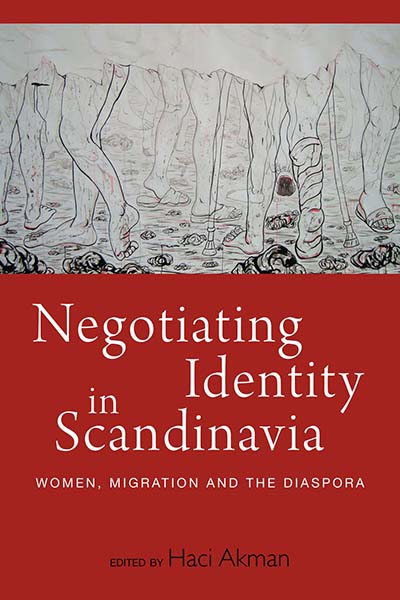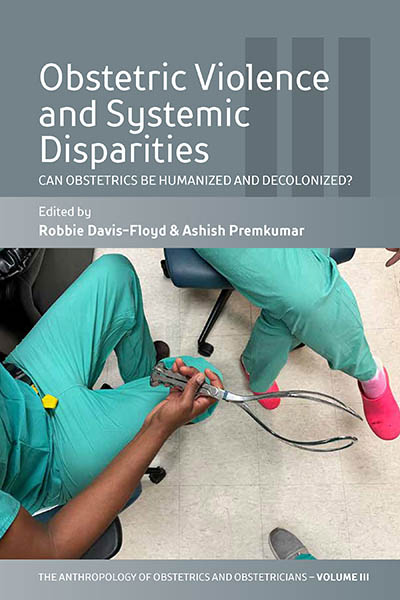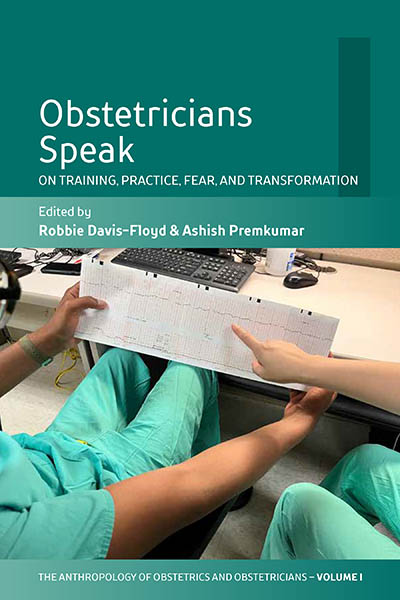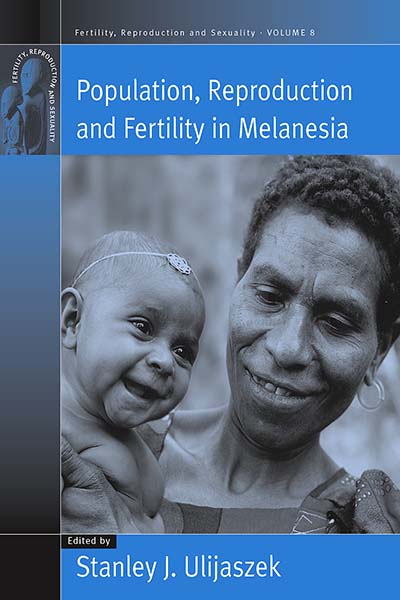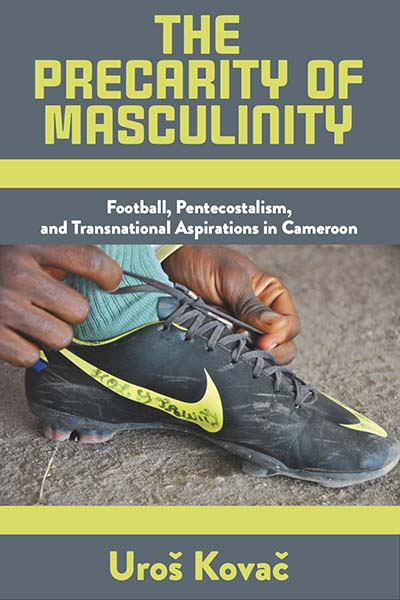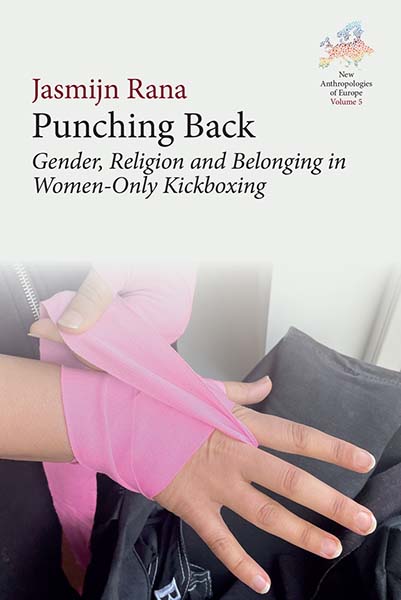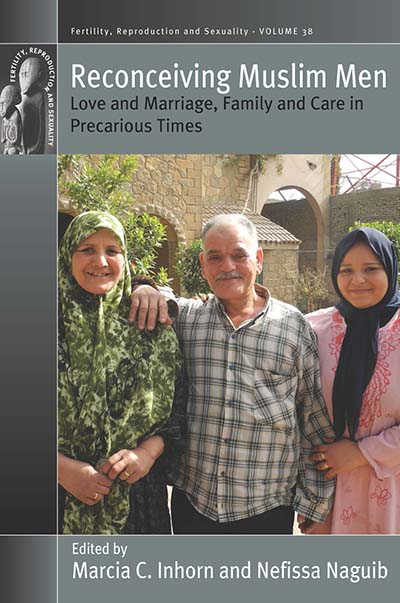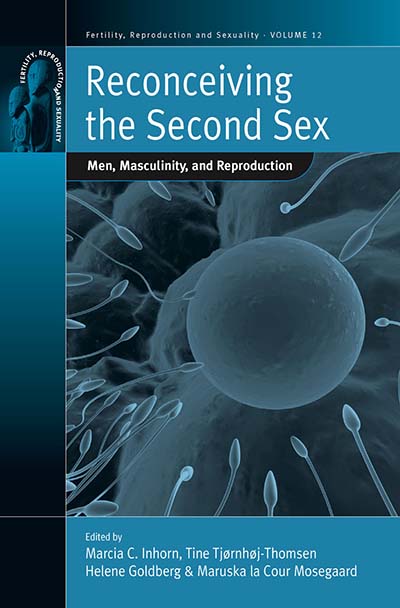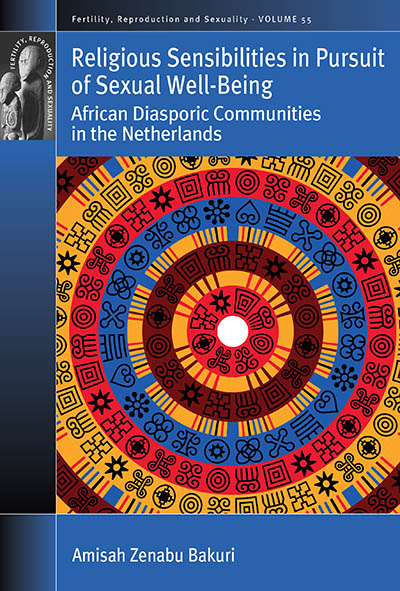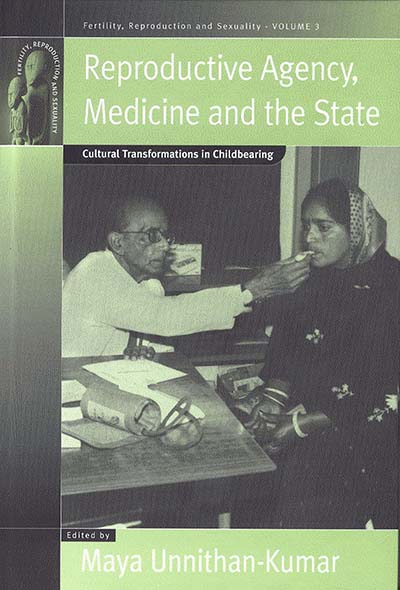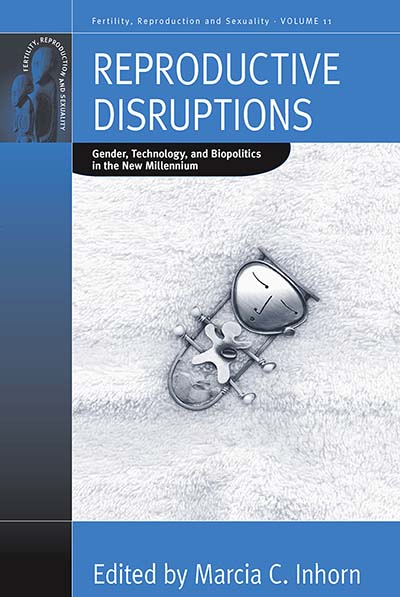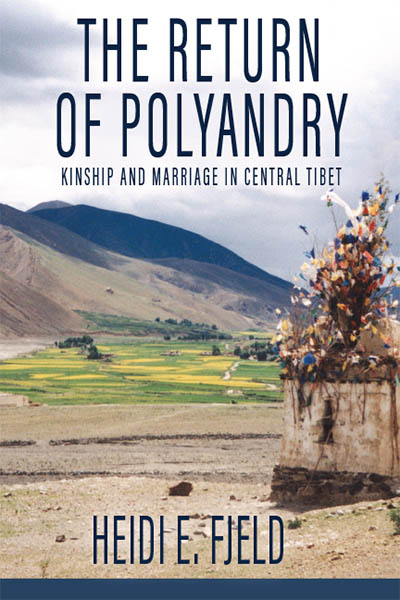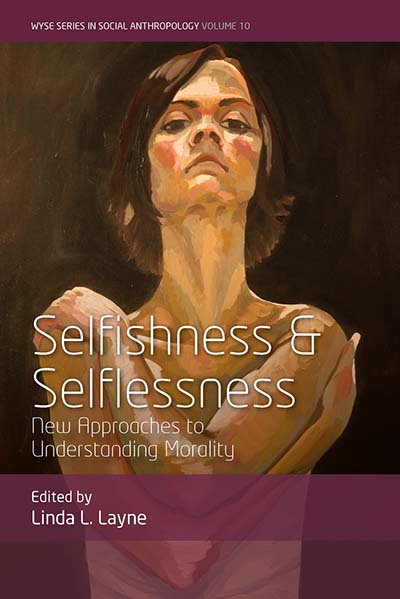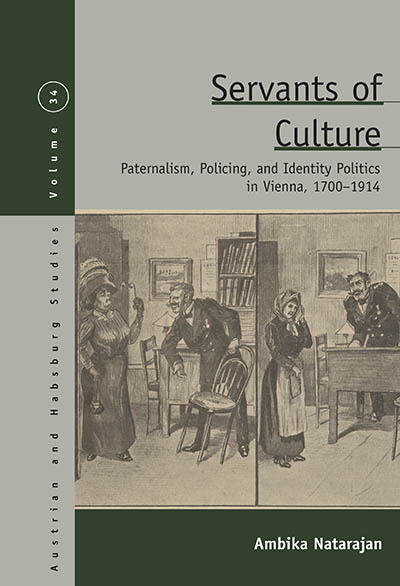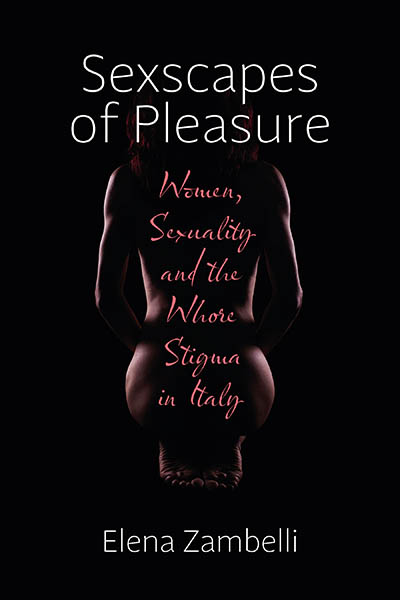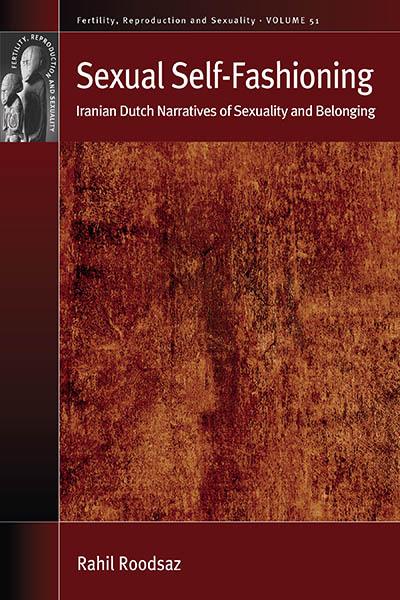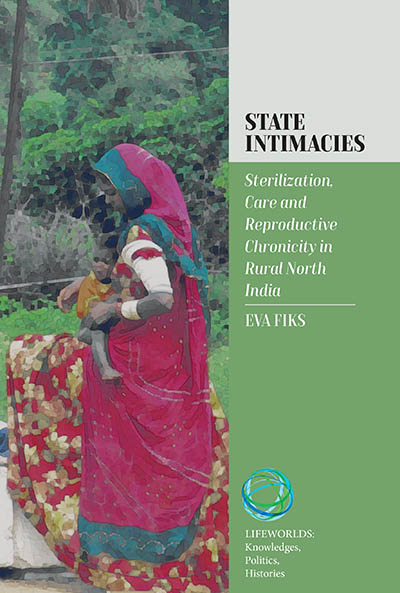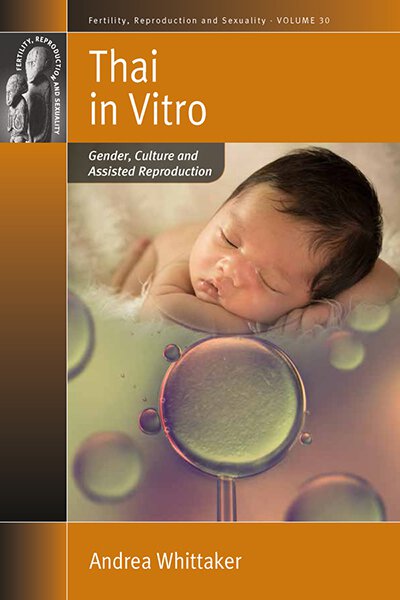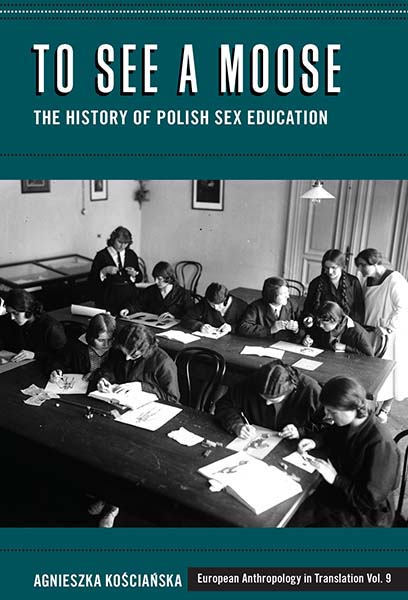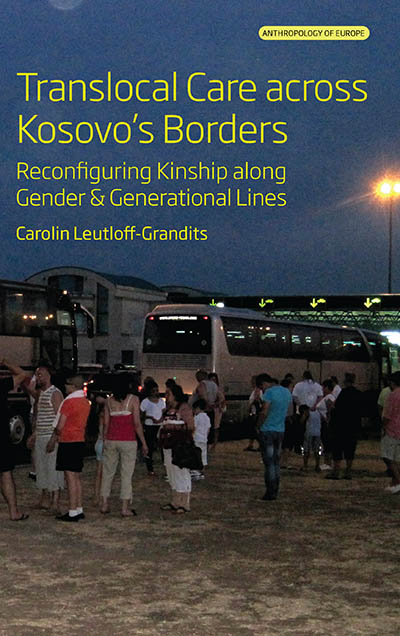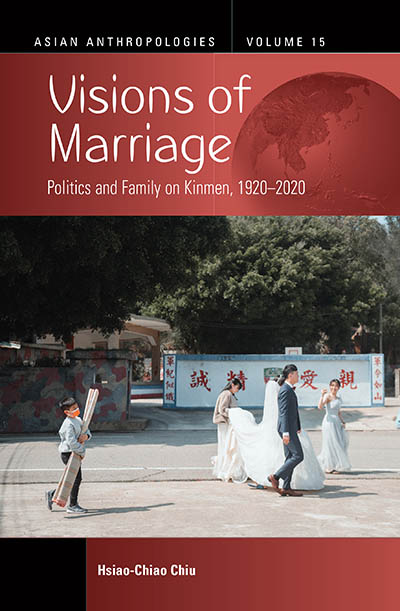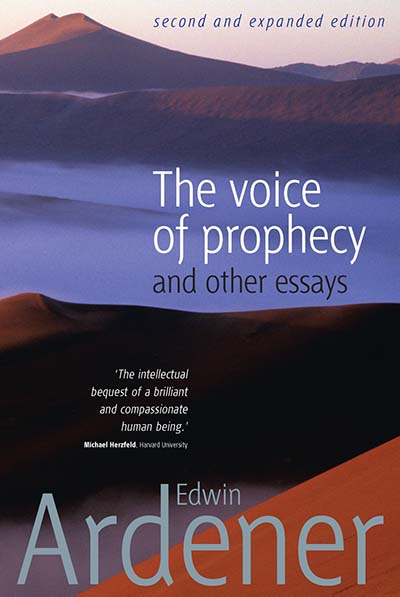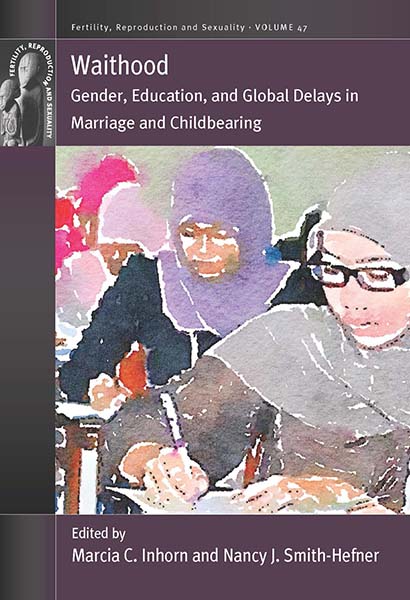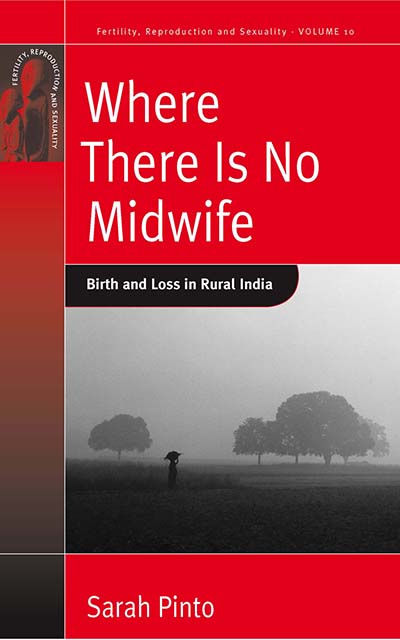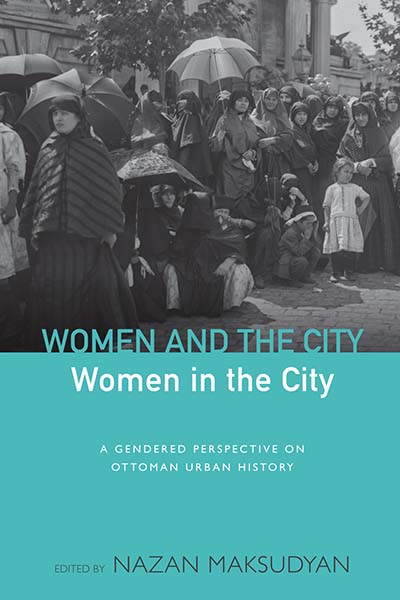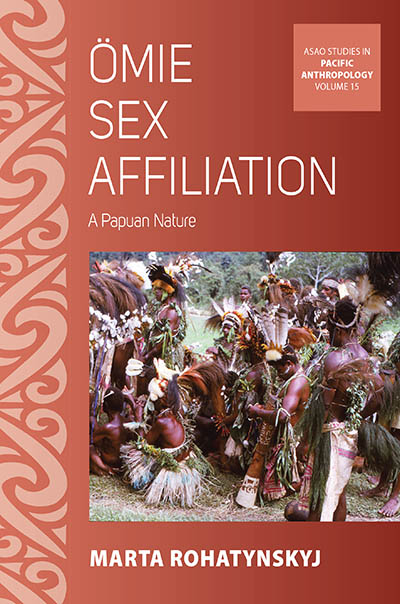Home -> Browse
-

Abortion in Post-revolutionary Tunisia
Politics, Medicine and Morality
Maffi, I.
After the revolution of 2011, the electoral victory of the Islamist party ‘Ennahdha’ allowed previously silenced religious and conservative ideas about women’s right to abortion to be expressed. This also allowed healthcare providers in the public sector to refuse abortion and contraceptive care. This book explores the changes and continuity in the local discourses and practices related to the body, sexuality, reproduction and gender relationships. It also investigates how the bureaucratic apparatus of government healthcare facilities affects the complex moral world of clinicians and patients.
Subjects: Medical Anthropology Gender Studies and Sexuality Political and Economic Anthropology
Area: Africa
-

Achieving Procreation
Childlessness and IVF in Turkey
Demircioğlu Göknar, M.
Managing social relationships for childless couples in pro-natalist societies can be a difficult art to master, and may even become an issue of belonging for both men and women. With ethnographic research gathered from two IVF clinics and in two villages in northwestern Turkey, this book explores infertility and assisted reproductive technologies within a secular Muslim population. Göknar investigates the experience of infertility through various perspectives, such as the importance of having a child for women, the mediating role of religion, the power dynamics in same-gender relationships, and the impact of manhood ideologies on the decision for — or against — having IVF.
Subjects: Medical Anthropology Gender Studies and Sexuality
Areas: Middle East & Israel Central/Eastern Europe
-

After Difference
Queer Activism in Italy and Anthropological Theory
Heywood, P.
Queer activism and anthropology are both fundamentally concerned with the concept of difference. Yet they are so in fundamentally different ways. The Italian queer activists in this book value difference as something that must be produced, in opposition to the identity politics they find around them. Conversely, anthropologists find difference in the world around them, and seek to produce an identity between anthropological theory and the ethnographic material it elucidates. This book describes problems faced by an activist "politics of difference," and issues concerning the identity of anthropological reflection itself—connecting two conceptions of difference whilst simultaneously holding them apart.
Subjects: Theory and Methodology Anthropology (General) Gender Studies and Sexuality
Area: Southern Europe
-

An American Icon in Puerto Rico
Barbie, Girlhood, and Colonialism at Play
Aguiló-Pérez, E. R.
Focusing on multigenerational Puerto Rican women and girls, Emily R. Aguiló-Pérez masterfully illustrates how Barbie dolls impact femininity, body image, and cultural identity.
Since her debut in 1959, Barbie has transcended boundaries and transformed into a global symbol of femininity, capturing the imaginations of girls all around the world. An American Icon in Puerto Rico offers a captivating study of that iconic influence by focusing on a group of multigenerational Puerto Rican women and girls.
Through personal narratives and insights, author Emily R. Aguiló-Pérez unveils the emotional attachment that these women and girls have formed with the doll during their formative years. This connection serves as a powerful lens to explore the intricate relationships girls have with their Barbie dolls and the complex role Barbie plays in shaping their identities.
Aguiló-Pérez boldly confronts the challenges and contradictions that arise, offering a compelling analysis of how playing with Barbie dolls can impact a girl's perception of femininity, body image, race, and even national identity. Through these nuanced explorations, she unearths the potential pitfalls of these influences, encouraging readers to reflect on their own relationships with the iconic doll.
By weaving together personal anecdotes, historical context, and sociocultural analysis, Aguiló-Pérez masterfully illustrates how these women and girls navigate the diverse landscapes of femininity, body image, and cultural identity, with Barbie serving as both a facilitator and a reflection of their growth. In doing so, she redefines the significance of Barbie in the lives of Puerto Rican women and girls, prompting readers from all around the world to reevaluate their perceptions of femininity and embrace a more inclusive understanding of beauty, body image, and self-expression.
Subjects: Gender Studies and Sexuality Cultural Studies (General) Sociology
Area: Latin America and the Caribbean
-

The Anthropology of the Fetus
Biology, Culture, and Society
Han, S., Betsinger, T. K., & Scott, A. B. (eds)
As a biological, cultural, and social entity, the human fetus is a multifaceted subject which calls for equally diverse perspectives to fully understand. Anthropology of the Fetus seeks to achieve this by bringing together specialists in biological anthropology, archaeology, and cultural anthropology. Contributors draw on research in prehistoric, historic, and contemporary sites in Europe, Asia, North Africa, and North America to explore the biological and cultural phenomenon of the fetus, raising methodological and theoretical concerns with the ultimate goal of developing a holistic anthropology of the fetus.
Subjects: Medical Anthropology Gender Studies and Sexuality Cultural Studies (General)
-

Becoming Good Women
Schooling, Aspirations and Imagining the Future Among Female Students in Sri Lanka
Batatota, L. S.
For female Sinhalese students attending a national school in the Central Province of Sri Lanka, the school serves as a significant base for cultural production, particularly in reproducing ethno-religious hegemony under the guise of ‘good’ Buddhist girls. It illustrates that tuition space acts as an important site for placemaking, where students play out their cosmopolitan aspirations whilst acquiring educational capital. Drawing on theories of social reproduction, the book examines young people’s aspirations of ‘figuring out’ their identity and visions of the future against the backdrop of nation-building processes within the school.
Subjects: Political and Economic Anthropology Educational Studies Gender Studies and Sexuality Sustainable Development Goals
Area: Asia
-

Being a Sperm Donor
Masculinity, Sexuality, and Biosociality in Denmark
Mohr, S.
What does it mean to be a man in our biomedical day and age? Through ethnographic explorations of the everyday lives of Danish sperm donors, Being a Sperm Donor explores how masculinity and sexuality are reconfigured in a time in which the norms and logics of (reproductive) biomedicine have become ordinary. It investigates men’s moral reasoning regarding donation, their handling of transgressive experiences at the sperm bank, and their negotiations of gender, sexuality, intimacy, and relatedness, showing how the socio-cultural and political dimensions of (reproductive) biomedicine become intertwined with men’s intimate sense of self.
Subjects: Medical Anthropology Gender Studies and Sexuality Sociology
Area: Northern Europe
-

Bishkek Boys
Neighbourhood Youth and Urban Change in Kyrgyzstan’s Capital
Schröder, P.
In this pioneering ethnographic study of identity and integration, author Philipp Schröder explores urban change in Kyrgyzstan’s capital Bishkek from the vantage point of the male youth living in one neighbourhood. Touching on topics including authority, violence, social and imaginary geographies, interethnic relations, friendship, and competing notions of belonging to the city, Bishkek Boys offers unique insights into how post-Socialist economic liberalization, rural-urban migration and ethnic nationalism have reshaped social relations among young males who come of age in this Central Asian urban environment.
Subjects: Gender Studies and Sexuality Refugee and Migration Studies Urban Studies
Area: Asia
-

Breast Feeding and Sexuality
Behaviour, Beliefs and Taboos among the Gogo Mothers in Tanzania
Mabilia, M.
Whereas in western countries breastfeeding is an uncontroversial, purely personal issue, in most parts of the world mother and baby form part of a network of interpersonal relations with its own rules and expectations. In this study, the author examines the cultural and social context of breastfeeding among the Gogo women of the Cigongwe's village in Tanzania, as part of the Paediatric Programme of Doctors with Africa, based in Padua. The focus is on mothers' behaviour and post partum taboos as key elements in Gogo understanding of the vicissitudes of the breast feeding process. This nutritional period is subject to many different events both physical and social that may upset the natural and intense link between mother and child. Any violation of cultural norms, particularly those dealing with sexual behaviour, marriage and reproduction, can, in the eyes of the Gogo, put at risk the correct development of an infant with serious consequences both for the baby's health as well as for the woman's image as mother and wife.
Subjects: Medical Anthropology Gender Studies and Sexuality
Area: Africa
-

Broken Glass, Broken Class
Transformations of Work in Bulgaria
Kofti, D.
Based on a long-term study of the everyday postsocialist politics of labour in the wider context of intense socio-economic transformation in Bulgaria, this book tells the story of the flexibilization of production, the precaritization of work, shifting managerial practices, and ways in which people with different employment statuses live and work together. The ethnography starts with the rapidly moving conveyor belt of a glass factory, where a variety of global and local forces and workers’ divisions meet, and analyses how inequalities are reproduced both at the production site and back home.
Subjects: Political and Economic Anthropology Sociology Gender Studies and Sexuality
Area: Central/Eastern Europe
-

Children are Everywhere
Conspicuous Reproduction and Childlessness in Reunified Berlin
Joshi, M.
Children are Everywhere engages with how demographic anxieties and reproductive regimes emerge as forms of social inclusion and exclusion in a low fertility Western European context. This book explores everyday experiences of parenting and childlessness of ‘ethnic’ Germans in Berlin, who came of age around the fall of the Berlin Wall, and brings them into conversation with theories on parenting, waithood, non-biological intimacies, and masculinities. This is the first ethnographic work by a South Asian author on demographic anxieties and reproduction in Germany and reverses the anthropological gaze to study Europe as the ‘Other.’
Subjects: Anthropology (General) Sociology Gender Studies and Sexuality
Area: Germany
-

Cognition, Risk, and Responsibility in Obstetrics
Anthropological Analyses and Critiques of Obstetricians’ Practices
Davis-Floyd, R. & Premkumar, A. (eds)
Volume 2 in this landmark 3-volume series The Anthropology of Obstetrics and Obstetricians: The Practice, Maintenance, and Reproduction of a Biomedical Profession looks at cognition, risk, and responsibility in obstetrics.
This volume contains social science analyses of Swiss, Chilean, Mexican, US, Greek, and Irish obstetrics and obstetricians, particularly around their reasons for the overuse of cesareans; a chapter on "4 Stages of Cognition" and a condition called "Substage," which describes how these concepts apply to obstetricians; and a chapter on why obstetricians fear home birth.
This book is a must-read for students, social scientists, and all maternity care practitioners who seek to understand obstetricians' differing ideologies and motives for practicing as they do.
An excerpt from Vania Smith-Oka and Lydia Dixon's chapter:
For systemic changes to occur, we must understand doctors’ decision-making rationales and take their fear-based perspectives about risk and responsibility into account, while also paying attention to the concerns raised by scholars and activists.Subjects: Medical Anthropology Gender Studies and Sexuality
-

Conceiving Kinship
Assisted Conception, Procreation and Family in Southern Europe
Bonaccorso, M. M. E.
Conceiving Kinship is an in-depth journey, the first of its kind, into how heterosexual, lesbian and gay couples using programmes of gamete donation conceptualize and make Italian kinship. It explores the provision of treatment in clinical and non-clinical settings at a time when Italy was considered the 'Wild-West' of assisted conception. This compelling study provides a new perspective on hotly debated issues in kinship studies and the modern medical technologies; it offers fresh insights into longstanding questions of cultural continuities and discontinuities in European kinship.
Subjects: Medical Anthropology Gender Studies and Sexuality
Area: Southern Europe
-

Cosmopolitan Refugees
Somali Migrant Women in Nairobi and Johannesburg
Ripero-Muñiz, N.
Exploring the dynamics of identity formation processes in diasporic spaces, this book analyses how gender, cultural and religious practices are renegotiated in a situation of displacement. The author presents the comparative case study of Somali migrant women in Nairobi and Johannesburg: two cosmopolitan urban hubs in the global South. The book is based on and includes ethnographic observations in Nairobi and Johannesburg, first-person accounts of migration journeys across the African continent and women’s reflections on what it means to be a Somali woman today.
Subjects: Refugee and Migration Studies Anthropology (General) Gender Studies and Sexuality
Area: Africa
-

The Cultural Politics of Reproduction
Migration, Health and Family Making
Unnithan-Kumar, M. & Khanna, S. K. (eds)
Charting the experiences of internally or externally migrant communities, the volume examines social transformation through the dynamic relationship between movement, reproduction, and health. The chapters examine how healthcare experiences of migrants are not only embedded in their own unique health worldviews, but also influenced by the history, policy, and politics of the wider state systems. The research among migrant communities an understanding of how ideas of reproduction and “cultures of health” travel, how healing, birth and care practices become a result of movement, and how health-related perceptions and reproductive experiences can define migrant belonging and identity.
Subjects: Medical Anthropology Refugee and Migration Studies Gender Studies and Sexuality
-

Cutting Cosmos
Masculinity and Spectacular Events among the Bugkalot
Mikkelsen, H. H.
For the first time in over 30 years, a new ethnographic study emerges on the Bugkalot tribe, more widely known as the Ilongot of the northern Philippines. Exploring the notion of masculinity among the Bugkalot, Cutting Cosmos is not only an experimental, anthropological study of the paradoxes around which Bugkalot society revolves, but also a reflection on anthropological theory and writing. Focusing on the transgressive acts through which masculinity is performed, this book explores the idea of the cosmic cut, the ritual act that enables the Bugkalot man to momentarily hold still the chaotic flows of his world.
Subjects: Theory and Methodology Gender Studies and Sexuality Sociology
Area: Asia-Pacific
-

The Dance of Nurture
Negotiating Infant Feeding
Van Esterik, P. & O'Connor, R. A.
Breastfeeding and child feeding at the center of nurturing practices, yet the work of nurture has escaped the scrutiny of medical and social scientists. Anthropology offers a powerful biocultural approach that examines how custom and culture interact to support nurturing practices. Our framework shows how the unique constitutions of mothers and infants regulate each other. The Dance of Nurture integrates ethnography, biology and the political economy of infant feeding into a holistic framework guided by the metaphor of dance. It includes a critique of efforts to improve infant feeding practices globally by UN agencies and advocacy groups concerned with solving global nutrition and health problems.
Subjects: Medical Anthropology Gender Studies and Sexuality
-

Deconstructing Dolls
Girlhoods and the Meanings of Play
Forman-Brunell, M. (ed)
In recent decades, emerging scholarship in the field of girlhood studies has led to a particular interest in dolls as sources of documentary evidence. Deconstructing Dolls pushes the boundaries of doll studies by expanding the definition of dolls, ages of doll players, sites of play, research methods, and application of theory. By utilizing a variety of new approaches, this collected volume seeks to understand the historical and contemporary significance of dolls and girlhood play, particularly as they relate to social meanings in the lives of girls and young women across race, age, time, and culture.
Subjects: Gender Studies and Sexuality Cultural Studies (General)
-

Dreams, Gender, and Artisanal Mining in Papua New Guinea
An Ethnography of Value
Moretti, D.
Up to 200,000 Melanesian men, women, and children work as artisanal miners, yet their lifeworlds are seriously under-researched. This ethnography of a multigenerational community of migrant miners in Papua New Guinea shows that dreaming mediates how they experience and manage gold mining. Men argue that they alone can mine successfully by forming dream marriage bonds with the spirits of the land. Women draw on their own dream experience to challenge this, asserting their equal capacity to marry spirits and their right to mine. For women and men alike, dreams provide legitimations of agency and commentaries on mutual dependencies and moral obligations in the domestic domain and between humans and nonhumans.
Subjects: Anthropology (General) Gender Studies and Sexuality Sociology
Area: Asia-Pacific
-

Economic Citizenship
Neoliberal Paradoxes of Empowerment
Sa'ar, A.
With the spread of neoliberal projects, responsibility for the welfare of minority and poor citizens has shifted from states to local communities. Businesses, municipalities, grassroots activists, and state functionaries share in projects meant to help vulnerable populations become self-supportive. Ironically, such projects produce odd discursive blends of justice, solidarity, and wellbeing, and place the languages of feminist and minority rights side by side with the language of apolitical consumerism. Using theoretical concepts of economic citizenship and emotional capitalism, Economic Citizenship exposes the paradoxes that are deep within neoliberal interpretations of citizenship and analyzes the unexpected consequences of applying globally circulating notions to concrete local contexts.
Subjects: Anthropology (General) Gender Studies and Sexuality Sociology Political and Economic Anthropology
Area: Middle East & Israel
-

Elite Malay Polygamy
Wives, Wealth and Woes in Malaysia
Zeitzen, M. K.
Elite Malay women’s polygamy narratives are multiple and varied, and their sentiments regarding the practice are conflicted, as they are often torn between personal and religious convictions. This volume explores the ways in which this increasingly prominent practice impacts Malay gender relations. As Muslims, elite Malay women may be forced to accept polygamy, but they mostly condemn it as women and wives, as it forces them to manage their lives and loves under the “threat” of polygamy from a husband able to marry another woman without their knowledge or consent; a husband that is married but available.
Subjects: Anthropology (General) Sociology Gender Studies and Sexuality Political and Economic Anthropology
Area: Asia-Pacific
-

Ethical Practice in Participatory Visual Research with Girls
Transnational Approaches
Moletsane, R., Wiebesiek, L.,Treffry-Goatley, A. & Mandrona, A. (eds)
Girls and young women, particularly those from rural and indigenous communities around the world, face some of the most adverse social issues in the world despite the existence of protective laws and international treaties. Ethical Practice in Participatory Visual Research with Girls explores the potential of participatory visual method (PVM) for girls and young women in these communities, presenting and critiquing the everyday ethical dilemmas visual researchers face and the strategies they implement to address them, reflecting on principles of autonomy, social justice, and beneficence in transnational, indigenous and rural contexts.
Subjects: Gender Studies and Sexuality Sociology Sustainable Development Goals
-

Everyday Invisibility
The Lives of African Women in Greece
Zaphiriou-Zarifi, Viki
Greece’s economic collapse of 2008, compounded by years of austerity, soaring unemployment and increasing anti-migrant sentiment, intensified the vulnerabilities of African women in Athens. This book explores their everyday lives, showing how processes of gendered racialization render them both invisible and hyper-visible, heightening exposure to discrimination and precarity. Drawing on rich ethnographic material, it highlights the strategies they deploy to counter the disadvantages they face and secure livable lives. Resisting exclusion, liminality and marginalization, these women challenge who can and who cannot belong in contemporary Athens. The book offers a compelling account of resilience, agency and the creative ways in which people navigate conditions of economic crisis and rising xenophobia.
Subjects: Political and Economic Anthropology Gender Studies and Sexuality
Area: Southern Europe
-

Fatness and the Maternal Body
Women's Experiences of Corporeality and the Shaping of Social Policy
Unnithan-Kumar, M. & Tremayne, S. (eds)
Obesity is a rising global health problem. On the one hand a clearly defined medical condition, it is at the same time a corporeal state embedded in the social and cultural perception of fatness, body shape and size. Focusing specifically on the maternal body, contributors to the volume examine how the language and notions of obesity connect with, or stand apart from, wider societal values and moralities to do with the body, fatness, reproduction and what is considered ‘natural’. A focus on fatness in the context of human reproduction and motherhood offers instructive insights into the global circulation and authority of biomedical facts on fatness (as ‘risky’ anti-fit, for example). As with other social and cultural studies critical of health policy discourse, this volume challenges the spontaneous connection being made in scientific and popular understanding between fatness and ill health.
Subjects: Medical Anthropology Gender Studies and Sexuality
-

Fertility, Conjuncture, Difference
Anthropological Approaches to the Heterogeneity of Modern Fertility Declines
Kreager, P. & Bochow, A. (eds)
In the last forty years anthropologists have made major contributions to understanding the heterogeneity of reproductive trends and processes underlying them. Fertility transition, rather than the story of the triumphant spread of Western birth control rationality, reveals a diversity of reproductive means and ends continuing before, during, and after transition. This collection brings together anthropological case studies, placing them in a comparative framework of compositional demography and conjunctural action. The volume addresses major issues of inequality and distribution which shape population and social structures, and in which fertility trends and the formation and size of families are not decided solely or primarily by reproduction.
Subjects: Medical Anthropology Gender Studies and Sexuality
-

Gender in Georgia
Feminist Perspectives on Culture, Nation, and History in the South Caucasus
Barkaia, M. & Waterston, A. (eds)
As Georgia seeks to reinvent itself as a nation-state in the post-Soviet period, Georgian women are maneuvering, adjusting, resisting and transforming the new economic, social and political order. In Gender in Georgia, editors Maia Barkaia and Alisse Waterston bring together an international group of feminist scholars to explore the socio-political and cultural conditions that have shaped gender dynamics in Georgia from the late 19th century to the present. In doing so, they provide the first-ever woman-centered collection of research on Georgia, offering a feminist critique of power in its many manifestations, and an assessment of women’s political agency in Georgia.
Subjects: Gender Studies and Sexuality Anthropology (General) Cultural Studies (General)
Area: Central/Eastern Europe
-

Gender, Power, and Non-Governance
Is Female to Male as NGO Is to State?
Timmer, A. D. & Wirtz, E. (eds)
Using Sherry Ortner’s analogy of Female/Nature, Male/Culture, this volume interrogates the gendered aspects of governance by exploring the NGO/State relationship. By examining how NGOs/States perform gendered roles and actions and the gendered divisions of labor involved in different types of institutional engagement, this volume attends to the ways in which gender and governance constitute flexible, relational, and contingent systems of power. The chapters in this volume present diverse analyses of the ways in which projects of governance both reproduce and challenge binaries.
Subjects: Gender Studies and Sexuality Anthropology (General) Development Studies Sustainable Development Goals
-

Gender, Violence, Refugees
Buckley-Zistel, S. & Krause, U. (eds)
Providing nuanced accounts of how the social identities of men and women, the context of displacement and the experience or manifestation of violence interact, this collection offers conceptual analyses and in-depth case studies to illustrate how gender relations are affected by displacement, encampment and return. The essays show how these factors lead to various forms of direct, indirect and structural violence. This ranges from discussions of norms reflected in policy documents and practise, the relationship between relief structures and living conditions in camps, to forced military recruitment and forced return, and covers countries in Africa, Asia and Europe.
Subjects: Refugee and Migration Studies Peace and Conflict Studies Gender Studies and Sexuality Sustainable Development Goals
-

The Girl in the Pandemic
Transnational Perspectives
Mitchell, C. & Smith, A. (eds)
As seen in previous pandemics, girls and young women are particularly vulnerable as social issues such as homelessness, mental healthcare, access to education, and child labor are often exacerbated. The Girl in the Pandemic considers what academics, community activists, and those working in local, national, and global NGOs are learning about the lives of girls and young women during pandemics. Drawing from a range of responses during the pandemic including first person narratives, community ethnographies, and participatory action research, this collection offers a picture of how the COVID-19 pandemic played out in eight different countries.
Subjects: Gender Studies and Sexuality Development Studies Sociology Sustainable Development Goals
-

Girlhood and the Politics of Place
Mitchell, C. & Rentschler, C. (eds)
Examining context-specific conditions in which girls live, learn, work, play, and organize deepens the understanding of place-making practices of girls and young women worldwide. Focusing on place across health, literary and historical studies, art history, communications, media studies, sociology, and education allows for investigations of how girlhood is positioned in relation to interdisciplinary and transnational research methodologies, media environments, geographic locations, history, and social spaces. This book offers a comprehensive reading on how girlhood scholars construct and deploy research frameworks that directly engage girls in the research process.
Subjects: Gender Studies and Sexuality Anthropology (General)
-

Girls Take Action
Activism Networks by, for, and with Girls and Young Women
Vanner, C. (ed)
The repression of the rights of girls and women is continuously threatened in a wide range of global cultural contexts. From the rise in laws restricting reproductive freedom to the growth in essentialist ideas about gender and the backlash to the #MeToo movement, the challenges facing girls and young women are as diverse as the activism networks established to address them. Girls Take Action shines light on the myriad ways girls and young women are exercising agency in the face of injustice, considering especially the role of community and collaboration in fostering activism networks and ultimately a more transnational understanding of girlhood.
Subjects: Gender Studies and Sexuality Political and Economic Anthropology Sociology
-

Global Fluids
The Cultural Politics of Reproductive Waste and Value
Kroløkke, C.
In the fertility and cosmetics industries, women’s body products – such as urine, eggs, and placentas – have moved from being seen as waste to becoming valuable ingredients. Taking a sociological and anthropological perspective, the author focuses in particular on the role that countries like Denmark, Spain, the Netherlands, and Japan play in the reproductive products industry, and discusses the moral limits of the cultural and rhetorical trajectories that turn women’s body products into internationally mobile substances.
Subjects: Medical Anthropology Gender Studies and Sexuality Sociology
-

Globalized Fatherhood
Inhorn, M. C., Chavkin, W. & Navarro, J.-A. (eds)
Using an entirely new conceptual vocabulary through which to understand men’s experiences and expectations at the dawn of the twenty-first century, this path-breaking volume focuses on fatherhood around the globe, including transformations in fathering, fatherhood, and family life. It includes new work by anthropologists, sociologists, and cultural geographers, working in settings from Peru to India to Vietnam. Each chapter suggests that men are responding to globalization as fathers in creative and unprecedented ways, not only in the West, but also in numerous global locations.
Subjects: Medical Anthropology Gender Studies and Sexuality
-

Good Enough Mothers
Practicing Nurture and Motherhood in Chiapas, Mexico
López, JM
Motherhood in Mexico is profoundly shaped by the legacy of colonialism. This ethnography situates motherhood in a critical global health analysis of maternal health inequalities and interventions in the southeast state of Chiapas. Using a transitional life course framework, it demonstrates how the transition to motherhood is never complete. Once a good mother is defined, she becomes undefined, the goal posts moved, and the rules confronted.
Subjects: Gender Studies and Sexuality Anthropology (General)
Area: Latin America and the Caribbean
-

Honour and Violence
Gender, Power and Law in Southern Pakistan
Shah, N.
The practice of karo kari allows family, especially fathers, brothers and sons, to take the lives of their daughters, sisters and mothers if they are accused of adultery. This volume examines the central position of karo kari in the social, political and juridical structures in Upper Sindh, Pakistan. Drawing connections between local contests over marriage and resources, Nafisa Shah unearths deep historical processes and power relations. In particular, she explores how the state justice system and informal mediations inform each other in state responses to karo kari, and how modern law is implicated in this seemingly ancient cultural practice.
Subjects: Anthropology (General) Gender Studies and Sexuality
Area: Asia
-

How is a Man Supposed to be a Man?
Male Childlessness – a Life Course Disrupted
Hadley, R. A.
The global trend of declining fertility rates and an increasingly ageing population has serious implications for individuals and institutions alike. Childless men are mostly excluded from ageing, social science and reproduction scholarship and almost completely absent from most national statistics. This unique book examines the lived experiences of a hidden and disenfranchised population: men who wanted to be fathers. It explores the complex intersections that influence childlessness over the life course.
Subjects: Gender Studies and Sexuality Anthropology (General)
Area: Northern Europe
-

Impotent Warriors
Perspectives on Gulf War Syndrome, Vulnerability and Masculinity
Kilshaw, S.
From September 1990 to June 1991, the UK deployed 53,462 military personnel in the Gulf War. After the end of the conflict anecdotal reports of various disorders affecting troops who fought in the Gulf began to surface. This mysterious illness was given the name “Gulf War Syndrome” (GWS). This book is an investigation into this recently emergent illness, particularly relevant given ongoing UK deployments to Iraq, describing how the illness became a potent symbol for a plethora of issues, anxieties, and concerns. At present, the debate about GWS is polarized along two lines: there are those who think it is a unique, organic condition caused by Gulf War toxins and those who argue that it is probably a psychological condition that can be seen as part of a larger group of illnesses. Using the methods and perspective of anthropology, with its focus on nuances and subtleties, the author provides a new approach to understanding GWS, one that makes sense of the cultural circumstances, specific and general, which gave rise to the illness.
Subjects: Medical Anthropology Peace and Conflict Studies Gender Studies and Sexuality
Area: Middle East & Israel
-

Intimate Mobilities
Sexual Economies, Marriage and Migration in a Disparate World
Groes, C. & Fernandez, N. T. (eds)
As globalization and transnational encounters intensify, people’s mobility is increasingly conditioned by intimacy, ranging from love, desire, and sexual liaisons to broader family, kinship, and conjugal matters. This book explores the entanglement of mobility and intimacy in various configurations throughout the world. It argues that rather than being distinct and unrelated phenomena, intimacy-related mobilities constitute variations of cross-border movements shaped by and deeply entwined with issues of gender, kinship, race, and sexuality, as well as local and global powers and border restrictions in a disparate world.
Subjects: Mobility Studies Anthropology (General) Gender Studies and Sexuality
-

Invisible Labours
The Reproductive Politics of Second Trimester Pregnancy Loss in England
Middlemiss, A. L.
Tracing women’s experiences of miscarriage and termination for foetal anomaly in the second trimester, before legal viability, shows how such events are positioned as less ‘real’ or significant when the foetal being does not, or will not, survive. Invisible Labours describes the reproductive politics of this category of pregnancy loss in England. It shows how second trimester pregnancy loss produces specific medical and social experiences, revealing an underlying teleological ontology of pregnancy. Some women then understand their pregnancy through kinship with the unborn baby.
Subjects: Anthropology (General) Medical Anthropology Gender Studies and Sexuality
Area: Europe
-

Islam and New Kinship
Reproductive Technology and the Shariah in Lebanon
Clarke, M.
Assisted reproductive technologies such as in vitro fertilization have provoked global controversy and ethical debate. This book provides a groundbreaking investigation into those debates in the Islamic Middle East, simultaneously documenting changing ideas of kinship and the evolving role of religious authority in the region through a combination of in-depth field research in Lebanon and an exhaustive survey of the Islamic legal literature. Lebanon, home to both Sunni and Shiite Muslim communities, provides a valuable site through which to explore the overall dynamism and diversity of global Islamic debate. As this book shows, Muslim perspectives focus on the moral propriety of such controversial procedures as the use of donor sperm and eggs as well as surrogacy arrangements, which are allowed by some authorities using surprising and innovative legal arguments. These arguments challenge common stereotypes of the rigidity and conservatism of Islamic law and compel us to question conventional contrasts between ‘liberal’ and Islamic notions of moral freedom, as well as the epistemological assumptions of anthropology’s own ‘new kinship studies’. This book will be essential reading for anyone interested in contemporary Islam and the impact of reproductive technology on the global social imaginary.
Subjects: Medical Anthropology Anthropology of Religion Gender Studies and Sexuality
Area: Middle East & Israel
-

Life as a Migrant Muslim Woman in Sectarian Northern Ireland
An Exploration of Gender, Visibility, Movement and Placemaking
Lubit, A. J.
The lives of migrant Muslim women in divided, post-conflict Northern Ireland, both before and after the pandemic, are full of diverse stories and experiences of belonging. This book explores how women strive to belong and create a home despite pervasive hatred, sexism and racism. Under these circumstances, women employ various strategies to connect with people and places around them. Using personal stories, this book considers the relationships migrant Muslim women develop, the places they spend time and the activities they engage with. These stories are used to demonstrate the interconnectedness of gender, visibility, movement and placemaking as analytical concepts.
Subjects: Anthropology (General) Gender Studies and Sexuality Refugee and Migration Studies
Area: Northern Europe
-

Living Before Dying
Imagining and Remembering Home
Davies, J.
This in-depth description of life in a nursing/care home for 70 residents and 40 staff highlights the daily care of frail or ill residents between 80 and 100 years of age, including people suffering with dementia. How residents interact with care assistants is emphasised, as are the different behaviours of men and women observed during a year of daily conversations between the author, patients and staff, who share their stories of the pressures of the work. Living Before Dying shows a world where, in extreme old age, people have to learn how to cope with living communally.
Subjects: Anthropology (General) Medical Anthropology Gender Studies and Sexuality
-

Living Like a Girl
Agency, Social Vulnerability and Welfare Measures in Europe and Beyond
Vogel, M. & Arnell, L. (eds)
In recent decades, large-scale social changes have taken place in Europe. Ranging from neoliberal social policies to globalization and the growth of EU, these changes have significantly affected the conditions in which girls shape their lives. Living Like a Girl explores the relationship between changing social conditions and girls’ agency, with a particular focus on social services such as school programs and compulsory institutional care. The contributions in this collected volume seek to expand our understanding of contemporary European girlhood by demonstrating how social problems are managed in different cultural contexts, political and social systems.
Subjects: Gender Studies and Sexuality Sociology Cultural Studies (General) Sustainable Development Goals
Area: Europe
-

Made In Egypt
Gendered Identity and Aspiration on the Globalised Shop Floor
Chakravarti, L. Z.
This ground-breaking ethnography of an export-orientated garment assembly factory in Egypt examines the dynamic relationships between its managers – emergent Mubarak-bizniz (business) elites who are caught in an intensely competitive globalized supply chain – and the local daily-life realities of their young, educated, and mixed-gender labour force. Constructions of power and resistance, as well as individual aspirations and identities, are explored through articulations of class, gender and religion in both management discourses and shop floor practices. Leila Chakravarti’s compelling study also moves beyond the confines of the factory, examining the interplay with the wider world around it.
Subjects: Gender Studies and Sexuality Anthropology (General) Sociology
Area: Middle East & Israel
-

Madness, Bureaucracy and Gender in Mumbai, India
Narratives from a Psychiatric Hospital
Strauss, A.
Regional mental hospitals in India are perceived as colonial artefacts in need of reformation. In the last two decades, there has been discussion around the maltreatment of patients, corruption and poor quality of mental health treatment in these institutions. This ethnography scrutinizes the management of madness in one of these asylum-like institutions in the context of national change and the global mental health movement. The author explores the assembling and impact of psychiatric, bureaucratic, gendered and queer narratives in and around the hospital. Finally, the author attempts to reconcile social anthropology and psychiatry by scrutinising their divergent approaches towards ‘mad narratives’.
Subjects: Medical Anthropology Gender Studies and Sexuality
Area: Asia
-

Managing Reproductive Life
Cross-Cultural Themes in Fertility and Sexuality
Tremayne, S. (ed)
Throughout history human societies have sought to manage their reproductive lives to make them fit in with their social, economic and biological conditions. But the different ways communities regulate their fertility, penetrating every aspect of their social life, are so varied and specific that they are often incomprehensible to outsiders. In this book a group of anthropologists set out to throw new light on the dynamics of human reproduction in the world today, looking at the intricate ways that people manage their reproductive life across different cultures, and highlighting the wider meaning of human reproduction and its impact on social organization. The importance of human agency, ethnic boundaries, the regulation of gender relations, issues of fertility and infertility, the significance of children and motherhood and the problems of two large vulnerable social groups, youth and refugees, are all considered in their broader social contexts.
Subjects: Medical Anthropology Gender Studies and Sexuality
-

Militant Lactivism?
Attachment Parenting and Intensive Motherhood in the UK and France
Faircloth, C.
Following networks of mothers in London and Paris, the author profiles the narratives of women who breastfeed their children to full term, typically a period of several years, as part of an 'attachment parenting' philosophy. These mothers talk about their decision to continue breastfeeding as 'the natural thing to do': 'evolutionarily appropriate', 'scientifically best' and 'what feels right in their hearts'. Through a theoretical focus on knowledge claims and accountability, the author frames these accounts within a wider context of 'intensive parenting', arguing that parenting practices – infant feeding in particular – have become a highly moralized affair for mothers, practices which they feel are a critical aspect of their 'identity work'. The book investigates why, how and with what implications some of these mothers describe themselves as 'militant lactivists' and reflects on wider parenting culture in the UK and France. Discussing gender, feminism and activism, this study contributes to kinship and family studies by exploring how relatedness is enacted in conjunction to constructions of the self.
Subjects: Medical Anthropology Gender Studies and Sexuality
Area: Europe
-

Modernity and the Unmaking of Men
Schubert, V.
Responding to the renewed emphasis on the significance of village studies, this book focuses on aging bachelorhood as a site of intolerable angst when faced with rural depopulation and social precarity. Based on ongoing ethnographic fieldwork in contemporary Macedonian society, the book explores the intersections between modernity, kinship and gender. It argues that as a critical consequence of demographic rupture, changing values and societal shifts, aging bachelorhood illuminates and challenges conceptualizations of performativity and social presence.
Subjects: Anthropology (General) Sociology Gender Studies and Sexuality
Area: Central/Eastern Europe
-

Narrating Victimhood
Gender, Religion and the Making of Place in Post-War Croatia
Schäuble, M.
Mythologies and narratives of victimization pervade contemporary Croatia, set against the backdrop of militarized notions of masculinity and the political mobilization of religion and nationhood. Based on extensive ethnographic fieldwork in rural Dalmatia in the Croatian-Bosnian border region, this book provides a unique account of the politics of ambiguous Europeanness from the perspective of those living at Europe’s margins. Examining phenomena such as Marian apparitions, a historic knights tournament, the symbolic re-signification of a massacre site, and the desolate social situation of Croatian war veterans, Narrating Victimhood traces the complex mechanisms of political radicalization in a post-war scenario. This book provides a new perspective for understanding the ongoing processes of transformation in Southeastern Europe and the Balkans.
Subjects: Anthropology (General) Gender Studies and Sexuality
Area: Southern Europe
-

Negotiating Identity in Scandinavia
Women, Migration, and the Diaspora
Akman, H. (ed)
Gender has a profound impact on the discourse on migration as well as various aspects of integration, social and political life, public debate, and art. This volume focuses on immigration and the concept of diaspora through the experiences of women living in Norway, Sweden, and Denmark. Through a variety of case studies, the authors approach the multifaceted nature of interactions between these women and their adopted countries, considering both the local and the global. The text examines the “making of the Scandinavian” and the novel ways in which diasporic communities create gendered forms of belonging that transcend the nation state.
Subjects: Anthropology (General) Gender Studies and Sexuality Refugee and Migration Studies
Area: Northern Europe
-

Nighttime Breastfeeding
An American Cultural Dilemma
Tomori, C.
New parents in the United States are caught between responding to infant needs for closeness and breastfeeding, and cultural and medical norms that emphasize solitary sleep. This anthropological investigation shows that nighttime closeness and breastfeeding are the evolutionary and cross-cultural norm, but recent sociocultural shifts produced novel ideals of separation. The book uncovers how breastfeeding parents rework these cultural ideals. In this new edition, the author describes shifting medical guidance that increasingly supports breastfeeding yet remains largely separated from infant sleep guidance. The volume also provides a path towards more equitable approaches to nighttime infant care grounded in reproductive justice.
Subjects: Medical Anthropology Gender Studies and Sexuality
Area: North America
-

Obstetric Violence and Systemic Disparities
Can Obstetrics Be Humanized and Decolonized?
Davis-Floyd, R. & Premkumar, A. (eds)
The final volume in this landmark 3-volume series The Anthropology of Obstetrics and Obstetricians: The Practice, Maintenance, and Reproduction of a Biomedical Profession looks at the challenges, and even violence, that obstetricians face across the world.
Part I of this volume addresses obstetric violence and systemic racial, ethnic, gendered, and socio-structural disparities in obstetricians’ practices in the Dominican Republic, Mexico, Peru, and the US. Part II addresses decolonizing and humanizing obstetric training and practice in the UK, Russia, Brazil, New Zealand, and the US. Part 3 presents the ethnographic challenges that the chapter authors in Volumes II and III of this series faced in finding, surveying, interviewing, and observing obstetricians in various countries.
This book is a must-read for students, social scientists, and all maternity care practitioners who seek to understand the diverse challenges that obstetricians must overcome.
An excerpt:
In our Series Overview in Volume 1, we asked the question, “Can a book create a field?” and answered that question with a resounding “Yes!” … For us, the official creation of the field of the Anthropology of Obstetrics and Obstetricians has taken not one, but the 3 volumes that constitute this Book Series.Subjects: Medical Anthropology Gender Studies and Sexuality Sustainable Development Goals
-

Obstetricians Speak
On Training, Practice, Fear, and Transformation
Floyd-Davis, R. & Premkumar, A. (eds)
For the first time ever in a social science work, obstetricians tell their own stories of training, practice, fear, and transformation in this the first of the 3-volume series The Anthropology of Obstetrics and Obstetricians: The Practice, Maintenance, and Reproduction of a Biomedical Profession.
These stories range from those of abortion providers to those of maternal-fetal medicine specialists. Several chapters tell the stories of obstetricians who have made paradigm shifts from technocratic to humanistic practices, the benefits and joys of these paradigm shifts, and the ostracism, bullying, and outright persecution these humanistic obstetricians have suffered.
This book is a must-read for students, social scientists, and all maternity care practitioners who seek to understand the ideologies and motives of individual obstetricians.
An excerpt from Kathleen Hanlon-Lundberg’s chapter:
Largely maligned in reproductive anthropological literature as callous—if not brutal—self-serving effectors of the over-medicalization of childbirth, most obstetricians whom I know and have worked with are devoted to providing respectful, individualized care to their patients.Subjects: Medical Anthropology Gender Studies and Sexuality Sustainable Development Goals
-

Population, Reproduction and Fertility in Melanesia
Ulijaszek, S.J. (ed)
Human biological fertility was considered a important issue to anthropologists and colonial administrators in the first part of the 20th century, as a dramatic decline in population was observed in many regions. However, the total demise of Melanesian populations predicted by some never happened; on the contrary, a rapid population increase took place for the second part of the 20th century. This volume explores relationships between human fertility and reproduction, subsistence systems, the symbolic use of ideas of fertility and reproduction in linking landscape to individuals and populations, in Melanesian societies, past and present. It thus offers an important contribution to our understanding of the implications of social and economic change for reproduction and fertility in the broadest sense.
Subjects: Medical Anthropology Gender Studies and Sexuality
Area: Asia-Pacific
-

The Precarity of Masculinity
Football, Pentecostalism, and Transnational Aspirations in Cameroon
Kovač, U.
Since the 1990s, an increasing number of young men in Cameroon have aspired to play football as a career and a strategy to migrate abroad. Migration through the sport promises fulfillment of masculine dreams of sports stardom, as well as opportunities to earn a living that have been hollowed out by the country’s long economic stalemate. The aspiring footballers are increasingly turning to Pentecostal Christianity, which allows them to challenge common tropes of young men as stubborn and promiscuous, while also offering a moral and bodily regime that promises success despite the odds. Yet the transnational sports market is tough and unpredictable: it demands disciplined young bodies and introduces new forms of uncertainty. This book unpacks young Cameroonians' football dreams, Pentecostal faith, obligations to provide, and desires to migrate to highlight the precarity of masculinity in structurally adjusted Africa and neoliberal capitalism.
Subjects: Anthropology (General) Anthropology of Religion Gender Studies and Sexuality
Area: Africa
-

Punching Back
Gender, Religion and Belonging in Women-Only Kickboxing
Rana, J.
In the Netherlands, girls and young women are increasingly active in women-only kickboxing. The general assumption, in the Netherlands and in western Europe more broadly, is that women’s sport is a form of secular, feminist empowerment. Muslim women’s participation would then exemplify the incongruence of Islam with the modern, secular nation-state. Punching Back provides a detailed ethnographic study that contests this view by showing that young Muslim women who kickbox establish agentive selves by playing with gender norms, challenging expectations, and living out their religious subjectivities.
Subjects: Sociology Anthropology (General) Gender Studies and Sexuality
Area: Europe
-

Queer and Trans Life
Anthropological Futures
Posocco, S., Gonzalez-Polledo, E.J., Aaberg, L., & Altay, T. (eds)
Against a background marked by endless ordinary crises, widespread precarity, and disrupting critical events, Queer and Trans Life charts queer investments for the future. It examines the challenges and pleasures in marginal everyday experiences of gender and sexual dissidence and the labours of care and endurance which sustain a sense of sociality and community, often against all odds. It presents queer and trans anthropological research from emerging European contexts. Though occasionally posited as non-belonging, the volume demonstrates that queer anthropology in Europe continues to thrive by providing textured ethnographic analysis and timely interventions in anthropological theory.
Subjects: Political and Economic Anthropology Gender Studies and Sexuality
-

Reconceiving Muslim Men
Love and Marriage, Family and Care in Precarious Times
Inhorn, M. C. & Naguib, N. (eds)
This volume provides intimate anthropological accounts of Muslim men’s everyday lives in the Middle East, Asia, Africa, and diasporic communities in the West. Amid increasing political turmoil and economic precarity, Muslim men around the world are enacting nurturing roles as husbands, sons, fathers, and community members, thereby challenging broader systems of patriarchy and oppression. By focusing on the ways in which Muslim men care for those they love, this volume challenges stereotypes and showcases Muslim men’s humanity.
Subjects: Anthropology (General) Gender Studies and Sexuality Sociology
-

Reconceiving the Second Sex
Men, Masculinity, and Reproduction
Inhorn, M. C., Tjørnhøj-Thomsen, T., Goldberg, H. & Cour Mosegaard, M. la (eds)
Extensive social science research, particularly by anthropologists, has explored women’s reproductive lives, their use of reproductive technologies, and their experiences as mothers and nurturers of children. Meanwhile, few if any volumes have explored men’s reproductive concerns or contributions to women’s reproductive health: Men are clearly viewed as the “second sex” in reproduction. This volume argues that the marginalization of men is an oversight of considerable proportions. It sheds new light on male reproduction from a cross-cultural, global perspective, focusing not only upon men in Europe and America but also those in the Middle East, Asia, and Latin America. Both heterosexual and homosexual, married and unmarried men are featured in this volume, which assesses concerns ranging from masculinity and sexuality to childbirth and fatherhood.
Subjects: Medical Anthropology Gender Studies and Sexuality
-

Religious Sensibilities in Pursuit of Sexual Well-Being
African Diasporic Communities in the Netherlands
Bakuri, A. Z.
The self-identifying Ghanaian-Dutch and Somali-Dutch communities residing in the Randstad area of the Netherlands are deeply impacted by religious beliefs and cultural factors in their approach towards sexual health practices, well-being and pleasure. This book shows how religious sensibilities shape the physical activities, beauty practices, and gendered roles that are adopted into the daily lives of these communities in pursuit of their sexual and general well-being. Through an ethnographic account, it explores and challenges the assumptions held around the complex relationship between religion and sexuality.
Subjects: Gender Studies and Sexuality Anthropology (General) Anthropology of Religion
Area: Northern Europe
-

Reproductive Agency, Medicine and the State
Cultural Transformations in Childbearing
Unnithan-Kumar, M. (ed)
Recent years have seen many changes in human reproduction resulting from state and medical interventions in childbearing processes. Based on empirical work in a variety of societies and countries, this volume considers the relationship between reproductive processes (of fertility, pregnancy, childbirth and the postpartum period) on the one hand and attitudes, medical technologies and state health policies in diverse cultural contexts on the other.
Subjects: Medical Anthropology Gender Studies and Sexuality
-

Reproductive Disruptions
Gender, Technology, and Biopolitics in the New Millennium
Inhorn, M. C. (ed)
Nominated for the 2007 Book Prize by the Council on Anthropology and Reproduction (AAA)
Reproductive disruptions, such as infertility, pregnancy loss, adoption, and childhood disability, are among the most distressing experiences in people’s lives. Based on research by leading medical anthropologists from around the world, this book examines such issues as local practices detrimental to safe pregnancy and birth; conflicting reproductive goals between women and men; miscommunications between pregnant women and their genetic counselors; cultural anxieties over gamete donation and adoption; the contested meanings of abortion; cultural critiques of hormone replacement therapy; and the globalization of new pharmaceutical and assisted reproductive technologies. This breadth - with its explicit move from the “local” to the “global,” from the realm of everyday reproductive practice to international programs and policies - illuminates most effectively the workings of power, the tensions between women’s and men’s reproductive agency, and various cultural and structural inequalities in reproductive health.
Subjects: Medical Anthropology Gender Studies and Sexuality
-

The Return of Polyandry
Kinship and Marriage in Central Tibet
Fjeld, H. E.
Tibet is known for its broad range of marriage practices, particularly polyandry, where two or more brothers share one wife. With economic development and massive Chinese social and political reforms, including new marriage laws prohibiting plural marriages, polyandry was expected to disappear from Tibetan communities. This book takes as its starting point the surprising increase in polyandry in Panam valley from the 1980s.
Subjects: Anthropology (General) Gender Studies and Sexuality
Area: Asia
-

Selfishness and Selflessness
New Approaches to Understanding Morality
Layne, L. L. (ed)
We are said to be suffering a narcissism epidemic when the need for collective action seems more pressing than ever. The traits of Selfishness and selflessness address the ‘proper’ and ‘improper’ relationship between one’s self and others. The work they do during periods of social instability and cultural change is probed in this original, interdisciplinary collection. Contributions range from an examination of how these concepts animated the eighteenth-century anti-slavery campaigners to a dissection of the way middle-class mothers’ experiences illustrate gendered struggles over how much and to whom one is morally obliged to give.
Subjects: Anthropology (General) Gender Studies and Sexuality Sociology
-

Servants of Culture
Paternalism, Policing, and Identity Politics in Vienna, 1700-1914
Natarajan, A.
In nineteenth century Cisleithanian Austria, poor, working-class women underwent mass migrations from the countryside to urban centers for menial or unskilled labor jobs. Through legal provisions on women’s work in the Habsburg Empire, there was an increase in the policing and surveillance of what was previously a gender-neutral career, turning it into one dominated by thousands of female rural migrants. Servants of Culture provides an account of Habsburg servant law since the eighteenth century and uncovers the paternalistic and maternalistic assumptions and anxieties which turned the interest of socio-political players in improving poor living and working conditions into practices that created restrictive gender and class hierarchies. Through pioneering analysis of the agendas of medical experts, police, socialists, feminists, legal reformers, and even serial killers, this volume puts forth a neglected history of the state of domestic service discourse at the turn of the 19th century and how it shaped and continues to shape the surveillance of women.
Subjects: History: 18th/19th Century Refugee and Migration Studies Gender Studies and Sexuality
Area: Central/Eastern Europe
-

Sexscapes of Pleasure
Women, Sexuality and the Whore Stigma in Italy
Zambelli, E.
Focusing on Italy, this book discusses how women negotiate sexuality and social status in a Western sexscape constituted by multifaceted articulations of women’s sexuality, commodities and modernity. Drawing from ethnographic research, this book brings together the narratives of Italian and migrant women pole dancing for leisure, women pole and lap dancing for work, as well as women selling sex. By tracing commonalities in women’s processes of subjectivation and othering across the non/sex working women divide, the book foregrounds the intersecting structures of oppression under which women negotiate selfhood.
Subjects: Sociology Gender Studies and Sexuality Anthropology (General)
Area: Southern Europe
-

Sexual Self-Fashioning
Iranian Dutch Narratives of Sexuality and Belonging
Roodsaz, R.
Sexuality and gender have come to serve as measures for cultural belonging in discussions of the position of Muslim immigrants in multicultural Western societies. While the acceptance of assumed local norms such as sexual liberty and gender equality are seen as successful integration, rejecting them is regarded as a sign of failed citizenship. Focusing on premarital sex, homosexuality, and cohabitation outside marriage, this book provides an ethnographic account of sexuality among the Iranian Dutch. It argues that by embracing, rejecting, and questioning modernity in stories about sexuality, the Iranian Dutch actively engage in processes of self-fashioning.
Subjects: Gender Studies and Sexuality Refugee and Migration Studies Anthropology (General)
Area: Europe
-

State Intimacies
Sterilization, Care and Reproductive Chronicity in Rural North India
Fiks, E.
The public healthcare system in rural India is chronically under-resourced. It embodies and often perpetuates the wider politics of the Indian state towards its rural communities with provisions of care that are deeply entangled with violence and disgust. For rural women, such care deepens reproductive chronicity while providing temporary relief. Grounded in women’s everyday realities and experiences in sterilization camps and other healthcare settings in rural Rajasthan, State Intimacies examines the mundane workings, ambiguities and fragilities of care in post-colonial rural North India.
Subjects: Medical Anthropology Gender Studies and Sexuality
Area: Asia
-

Thai in Vitro
Gender, Culture and Assisted Reproduction
Whittaker, A.
In Thailand, infertility remains a source of stigma for those couples that combine a range of religious, traditional and high-tech interventions in their quest for a child. This book explores this experience of infertility and the pursuit and use of assisted reproductive technologies by Thai couples. Though using assisted reproductive technologies is becoming more acceptable in Thai society, access to and choices about such technologies are mediated by differences in class position. These stories of women and men in private and public infertility clinics reveal how local social and moral sensitivities influence the practices and meanings of treatment.
Subjects: Medical Anthropology Gender Studies and Sexuality
Area: Asia
-

To See a Moose
The History of Polish Sex Education
Kościańska, A.
Guiding the reader through the development of sex education in Poland, Agnieszka Kościańska looks at how it has changed from the 19th century to the present day. The book compares how sex was described in school textbooks, including those scrapped by the communists for fear of offending religious sentiments, and explores how the Catholic church retained its power in Poland under various regimes. The book also identifies the women and men who changed the way sex was written about in the country, and how they established the field of Polish sex education.
Subjects: Anthropology (General) Gender Studies and Sexuality History (General)
Area: Central/Eastern Europe
-

Translocal Care across Kosovo’s Borders
Reconfiguring Kinship along Gender and Generational Lines
Leutloff-Grandits, C.
In today’s globalized world, where the foundations of home and social security are destabilized due to wars and neoliberal transformations, the villagers of Kosovo are linked with a common locality despite living across borders. By tracing long-distant family relations with a special focus on cross-border marriages, this study looks at the reconfiguration of care relations, gender and generational roles among kin-members of Kosovo, who now live in different European states.
Subjects: Anthropology (General) Refugee and Migration Studies Gender Studies and Sexuality
Area: Southern Europe
-

Visions of Marriage
Politics and Family on Kinmen, 1920-2020
Chiu, H.-C.
Grounded in multi-generational stories from Kinmen in Taiwan, Visions of Marriage explores the historical entanglements between the pursuit of new personal and national futures. Focusing on the relational and future-making aspects of marriage, the ethnography highlights the intersection of transformations across familial generations and shifting political economies in Taiwan, and more globally. While theories of modernity often treat marriage as an index of social change, without adequate attention to its transformative capacities generated through personal and familial agency, this volume provides comparative insights on family change and demographic shifts in Asia.
Subjects: Anthropology (General) Sociology Gender Studies and Sexuality
Area: Asia
-

The Voice of Prophecy
And Other Essays
Ardener, E.
Edwin Ardener - a new expanded edition of the collected works of one of the most important social anthroplogists in Britian of his time. Ardener worked on social, economic, demographic and political problems, and was particularly influential in his sustained effort to bring together social anthropology and linguistics in a highly original attempt to reconcile scientific and humanistic approaches to the study of society. This volume offers a theoretically and conceptually coherent body of work by this innovative and profound thinker, which will continue to excite and stimulate new generations of students and researchers as it has in the past.
Subjects: Anthropology (General) Gender Studies and Sexuality
-

Waithood
Gender, Education, and Global Delays in Marriage and Childbearing
Inhorn, M. C. & Smith-Hefner, N. J. (eds)
The concept of “Waithood” was developed by political scientist Diane Singerman to describe the expanding period of time between adolescence and full adulthood as young people wait to secure steady employment and marry. The contributors to this volume employ the waithood concept as a frame for richly detailed ethnographic studies of “youth in waiting” from a variety of world areas, including the Middle East Africa, Asia, Europe, Latin America and the U.S, revealing that whether voluntary or involuntary, the phenomenon of youth waithood necessitates a recognition of new gender and family roles.
Subjects: Anthropology (General) Gender Studies and Sexuality Sociology
-

Where There Is No Midwife
Birth and Loss in Rural India
Pinto, S.
In the Sitapurdistrict of Uttar Pradesh, an agricultural region with high rates of infant mortality, maternal health services are poor while family planning efforts are intensive. By following the daily lives of women in this setting, the author considers the women’s own experiences of birth and infant death, their ways of making-do, and the hierarchies they create and contend with. This book develops an approach to the care that focuses on emotion, domestic spaces, illicit and extra-institutional biomedicine, and household and neighborly relations that these women are able to access. It shows that, as part of the concatenation of affect and access, globalized moralities about reproduction are dependent on ambiguous ideas about caste. Through the unfolding of birth and death, a new vision of "untouchability" emerges that is integral to visions of progress.
Subjects: Medical Anthropology Gender Studies and Sexuality
Area: Asia
-

Witchcraft, Witches, and Violence in Ghana
Adinkrah, M.
Witchcraft violence is a feature of many contemporary African societies. In Ghana, belief in witchcraft and the malignant activities of putative witches is prevalent. Purported witches are blamed for all manner of adversities including inexplicable illnesses and untimely deaths. As in other historical periods and other societies, in contemporary Ghana, alleged witches are typically female, elderly, poor, and marginalized. Childhood socialization in homes and schools, exposure to mass media, and other institutional mechanisms ensure that witchcraft beliefs are transmitted across generations and entrenched over time. This book provides a detailed account of Ghanaian witchcraft beliefs and practices and their role in fueling violent attacks on alleged witches by aggrieved individuals and vigilante groups.
Subjects: Anthropology (General) Anthropology of Religion Gender Studies and Sexuality
Area: Africa
-

Women and the City, Women in the City
A Gendered Perspective on Ottoman Urban History
Maksudyan, N. (ed)
An attempt to reveal, recover and reconsider the roles, positions, and actions of Ottoman women, this volume reconsiders the negotiations, alliances, and agency of women in asserting themselves in the public domain in late- and post-Ottoman cities. Drawing on diverse theoretical backgrounds and a variety of source materials, from court records to memoirs to interviews, the contributors to the volume reconstruct the lives of these women within the urban sphere. With a fairly wide geographical span, from Aleppo to Sofia, from Jeddah to Istanbul, the chapters offer a wide panorama of the Ottoman urban geography, with a specific concern for gender roles.
Subjects: Gender Studies and Sexuality Urban Studies History (General)
Area: Middle East & Israel
-

Women in Israel
Anthropological, Feminist, and Personal Perspectives
Hertzog, E.
There are diverse and complex problems faced by women in Israel. This book explores women's roles in teachers' labor conflicts, threatened motherhood within the welfare system, bureaucratic encounters faced by Ethiopian immigrant women, the lack of political representation amongst women, feminist activism against the sex industry, and gender power dynamics in gyms. It is a comprehensive feminist examination of women's diverse experiences in Israeli society over four decades and analyzes society during this time. As an ethnography, the book emphasizes a commitment to social justice and equality, and challenges prevailing social and gender research approaches.
Subjects: Political and Economic Anthropology Gender Studies and Sexuality
Area: Middle East & Israel
-

Women’s Empowerment and Son Preference in India
Feminist and Ethical discourse on Sex Selective Abortions
Suryanarayanan, S.
Sex selective abortions are unjust, unethical and illegal in India, yet the experience of motherhood for pregnant women can be influenced by ‘son preference’ from those who support female feticide. Women are denied agency in exercising reproductive rights and the medical fraternity often fosters the misuse of technologies for sex selective abortions in India. This book reviews the feminist, ethical and legal discourse on sex selective abortions and draws on women’s empowerment as an analytical lens to examine the son preference expressed in the notion of Vansh (lineage) among pregnant women, their partner s and mothers-in-law in three Indian states.
Subjects: Political and Economic Anthropology Gender Studies and Sexuality Medical Anthropology
Area: Asia
-

Ӧmie Sex Affiliation
A Papuan Nature
Rohatynskyj, M.
The practice of affiliating the female child with the mother and the male child with the father was considered a rare and inexplicable practice in Papua New Guinean ethnography at the time the original data was collected some forty years ago. Marta Rohatynskyj undertakes a shift in her analytical concepts of kinship studies to reveal the deep-seated disjuncture between female and male that this practice represents. The author argues that this practice is associated with a totemic/animistic ontology and has currency in a particular type of Melanesian society.
Subjects: Anthropology (General) Gender Studies and Sexuality Development Studies
Area: Asia-Pacific


